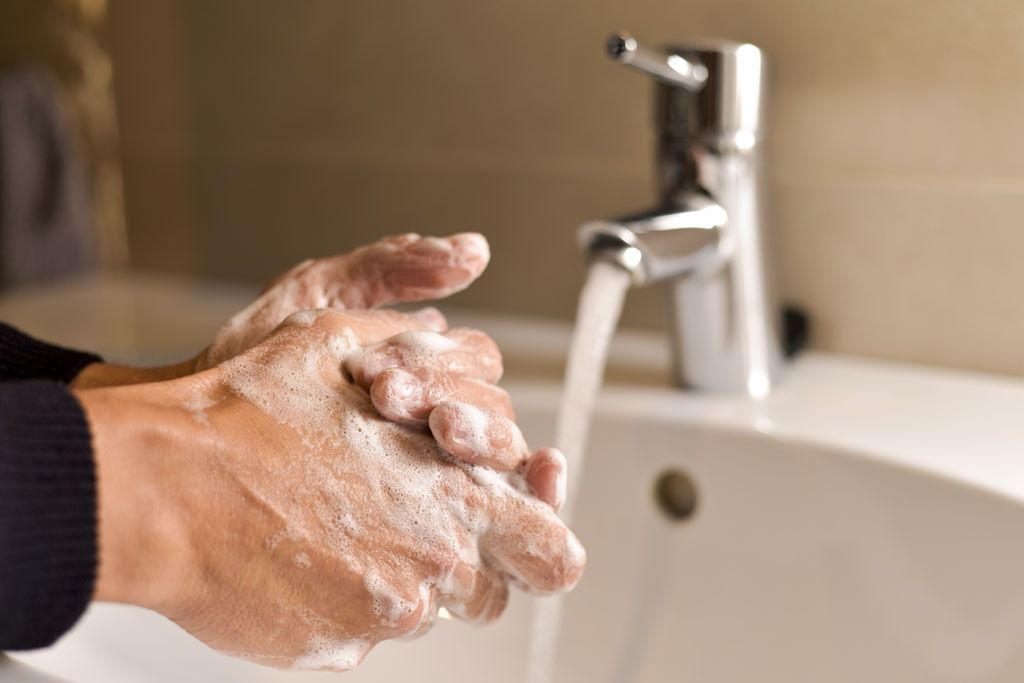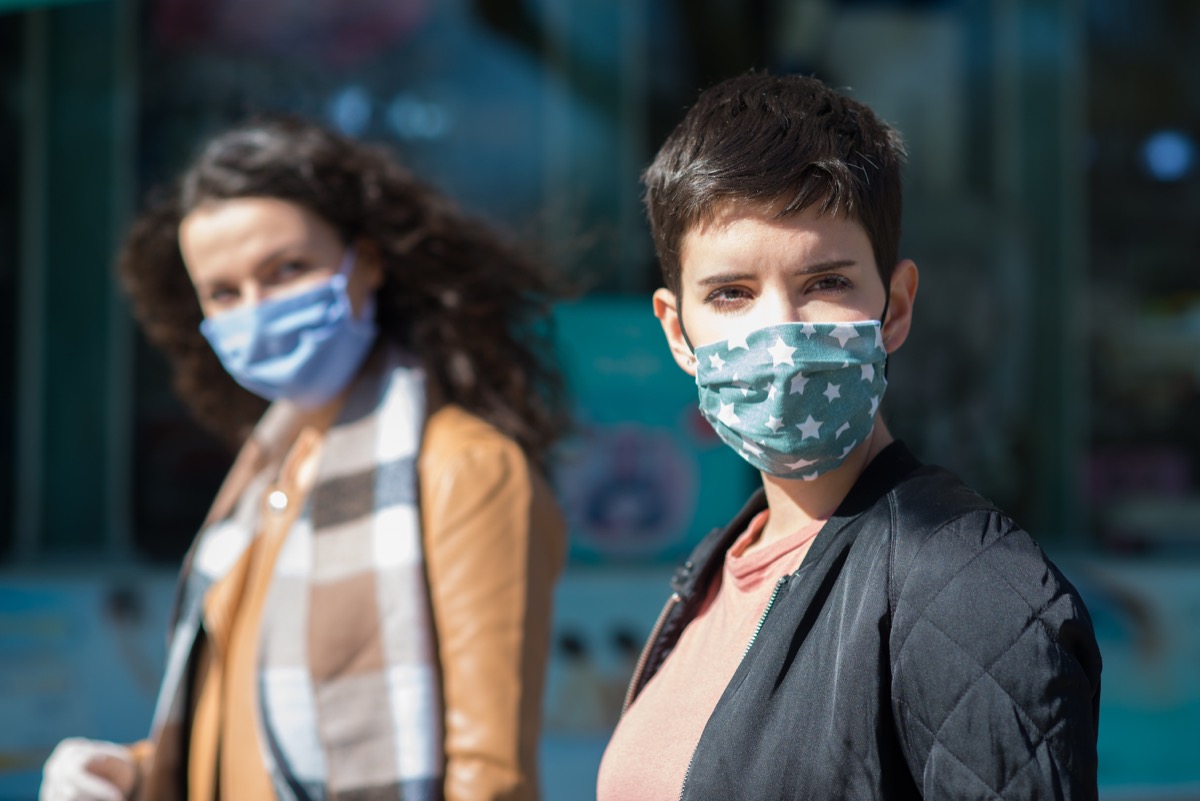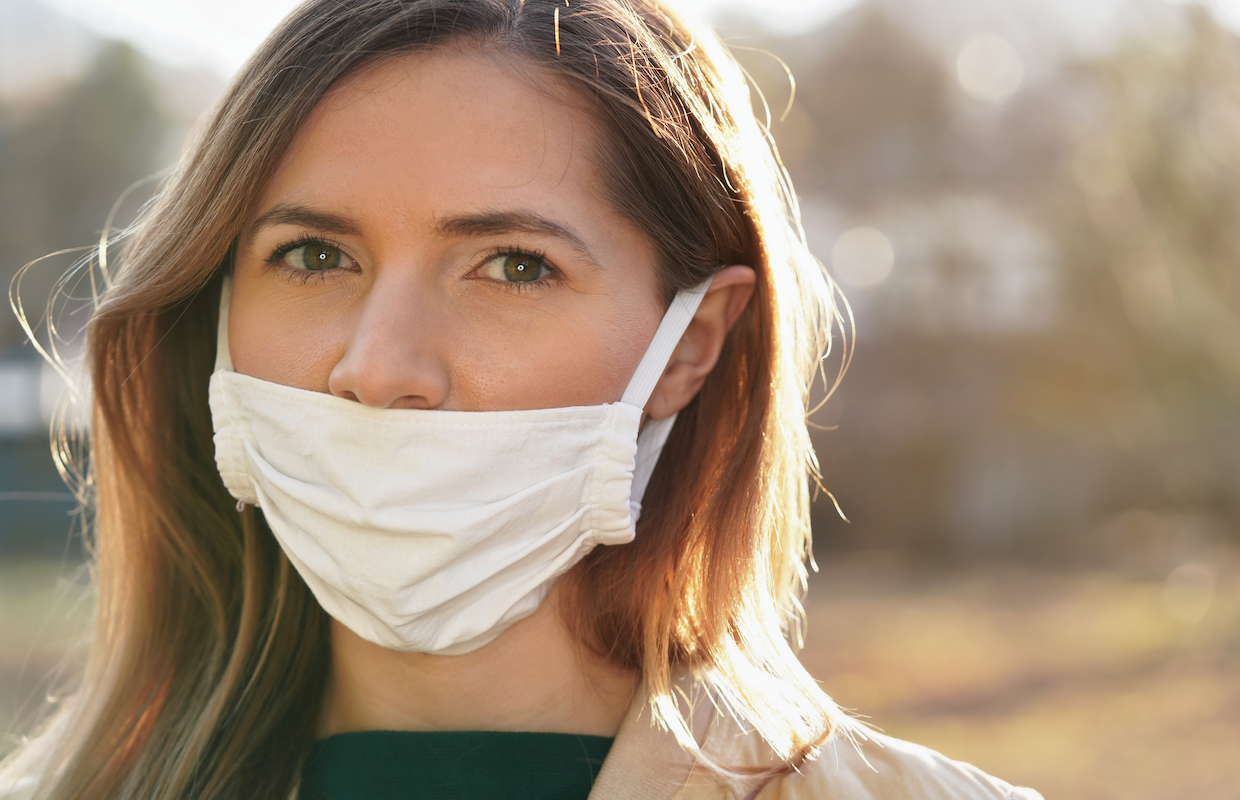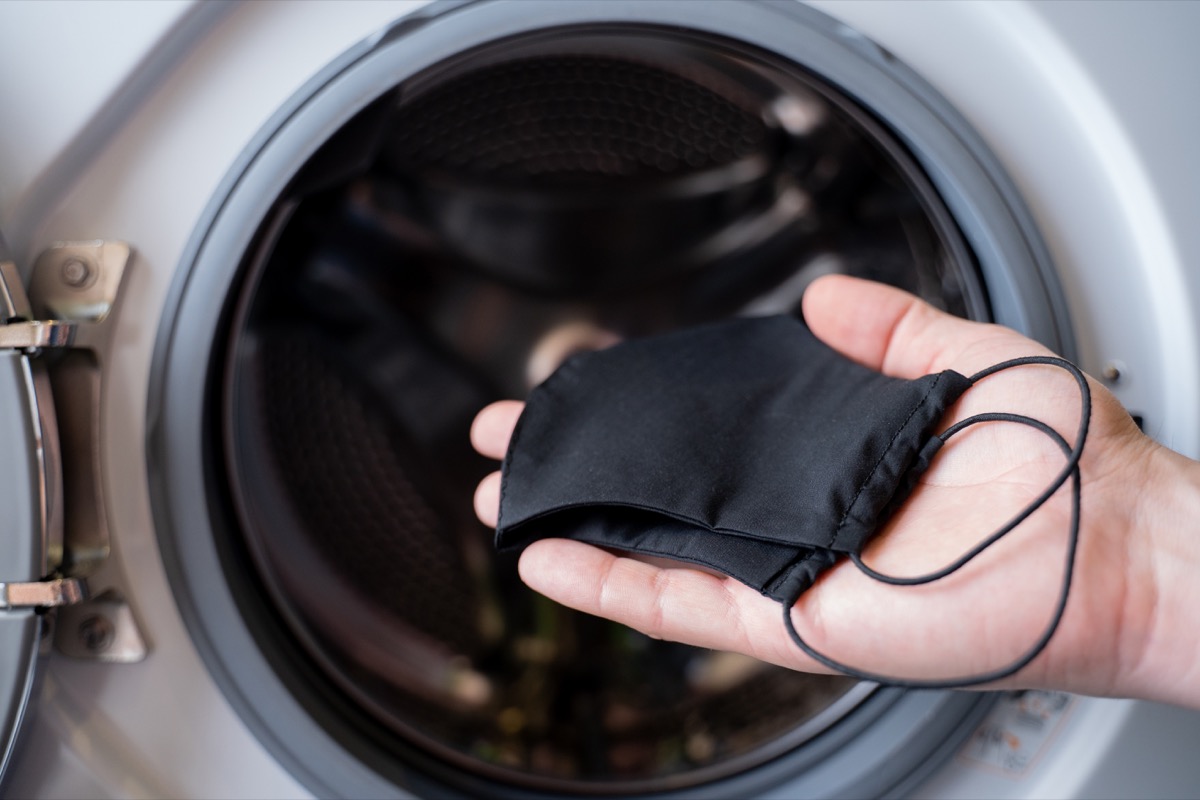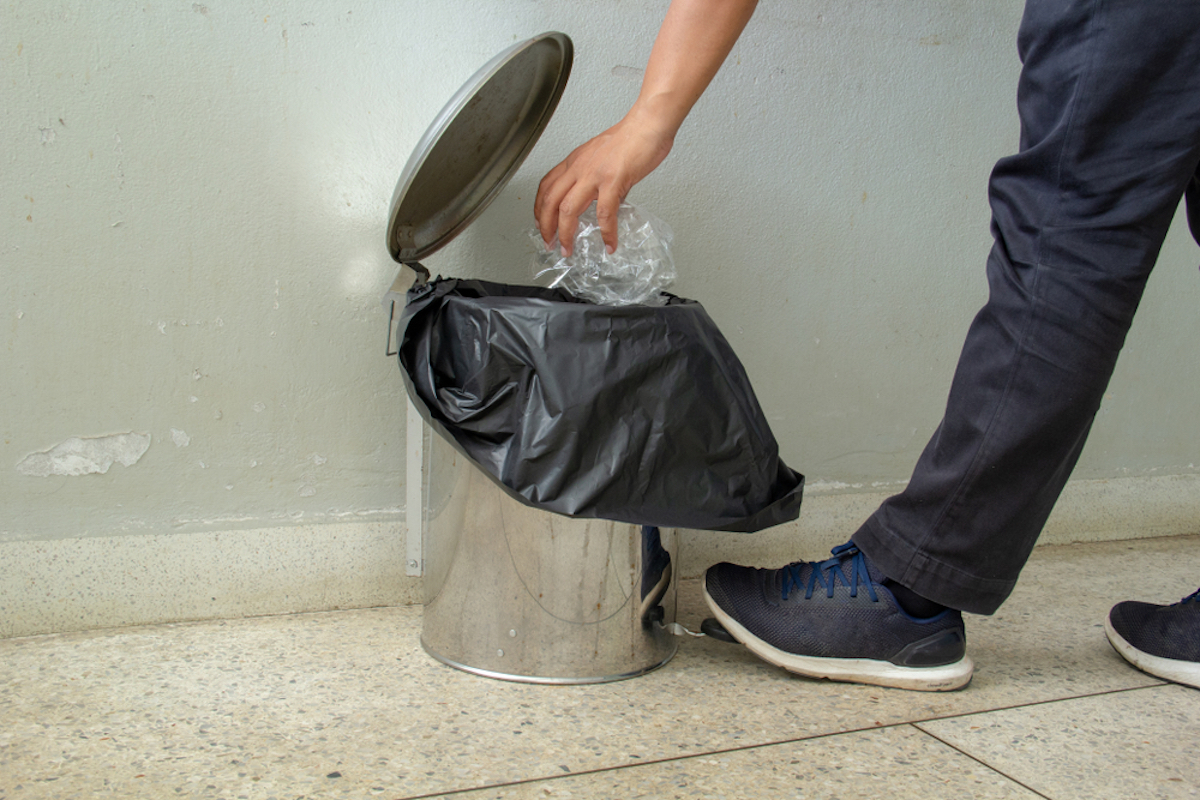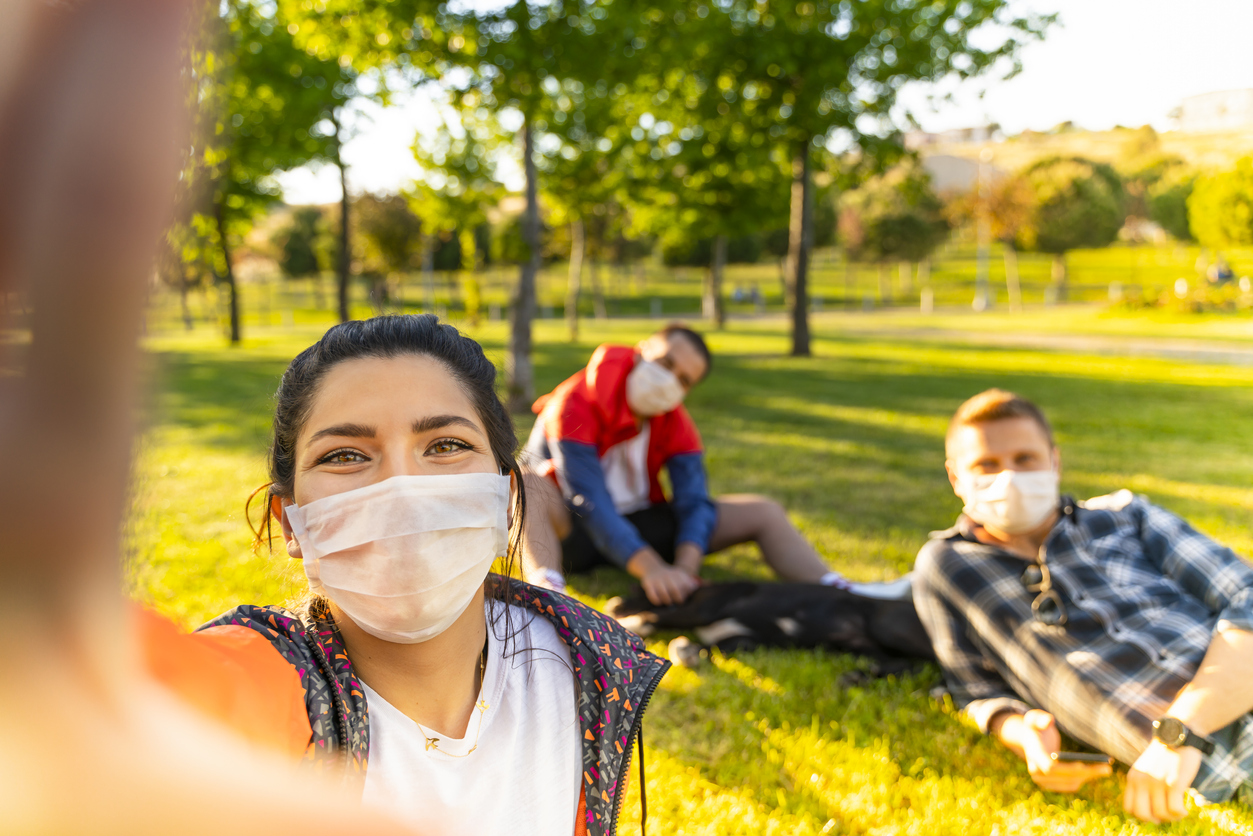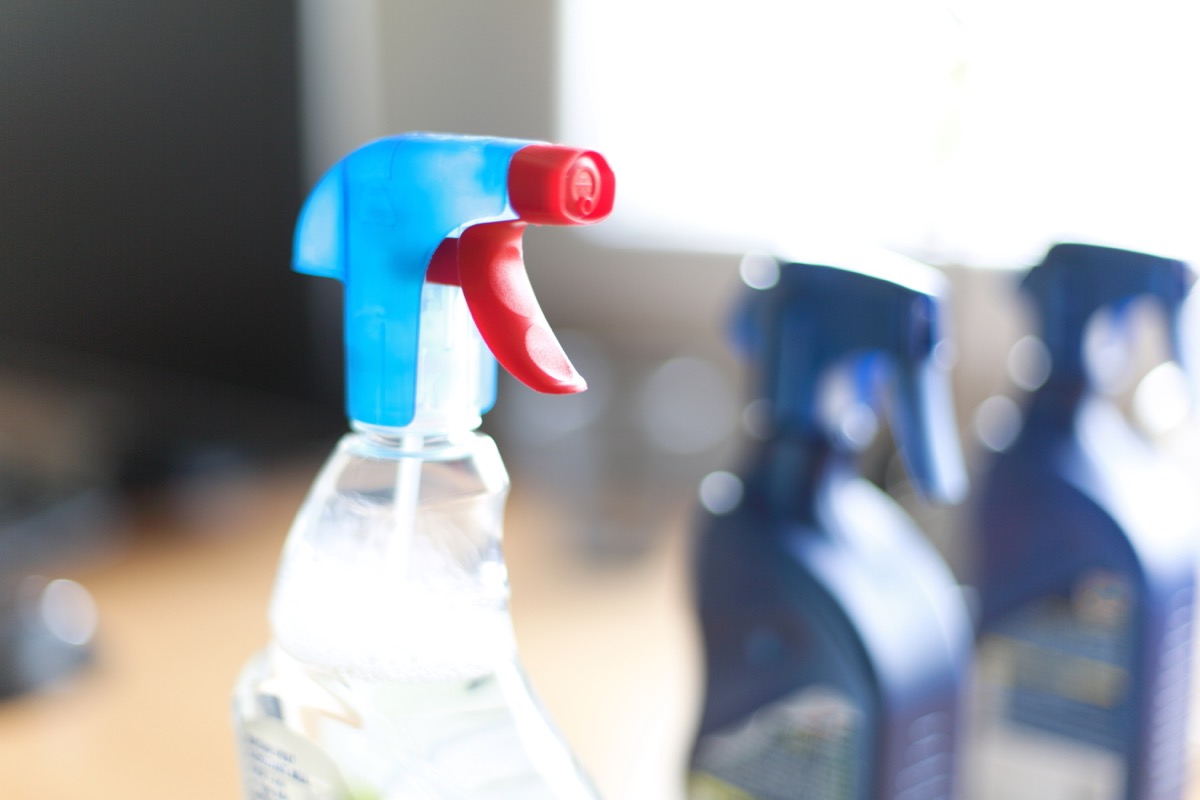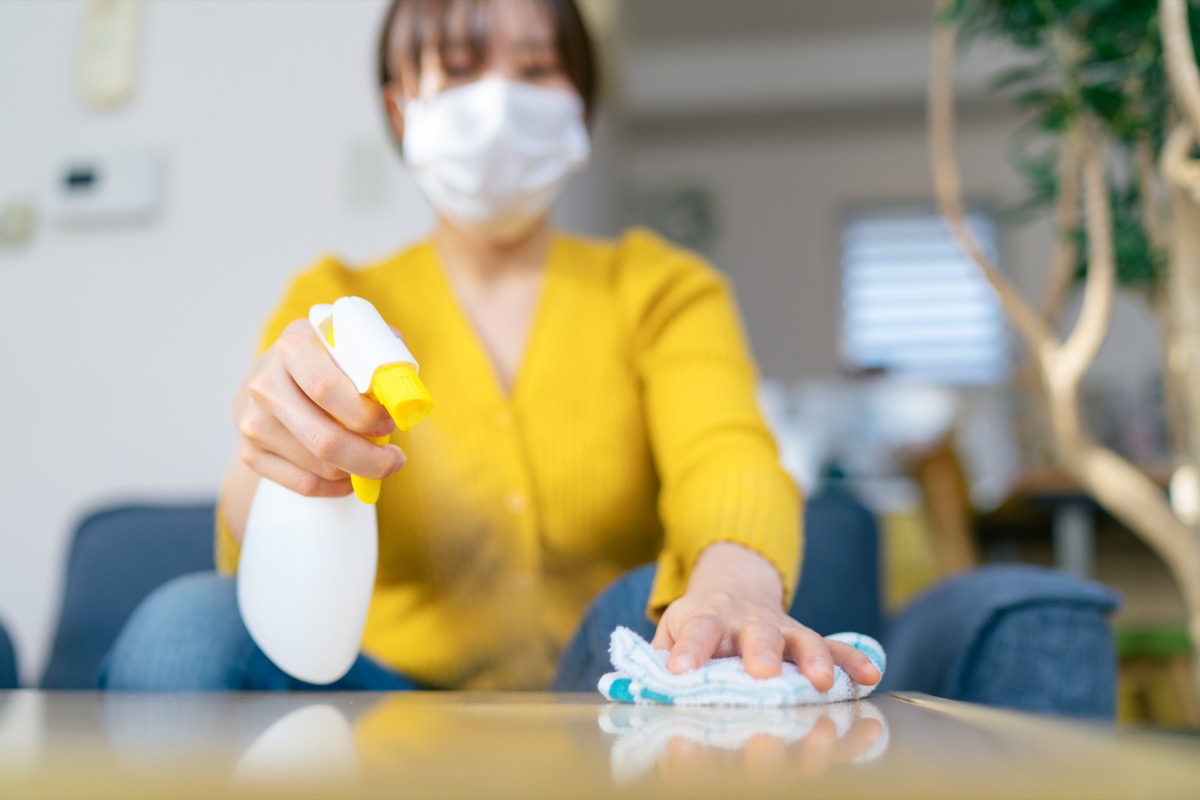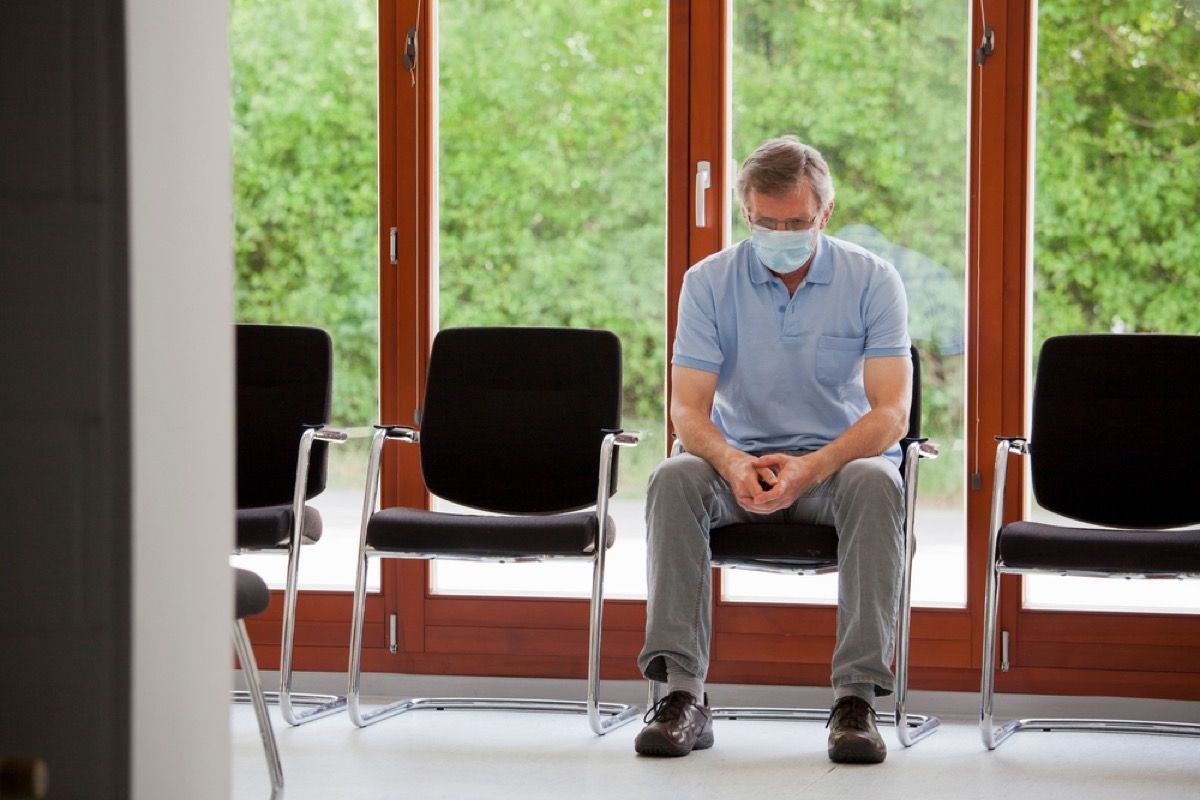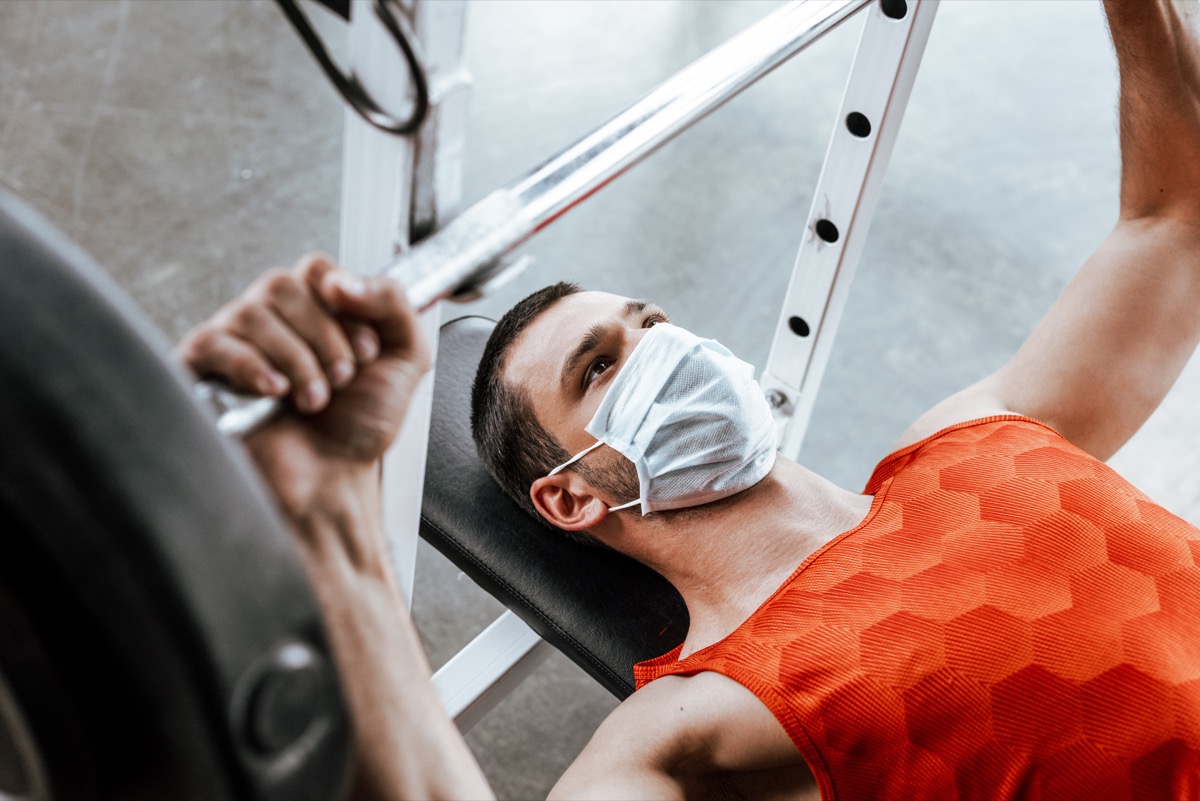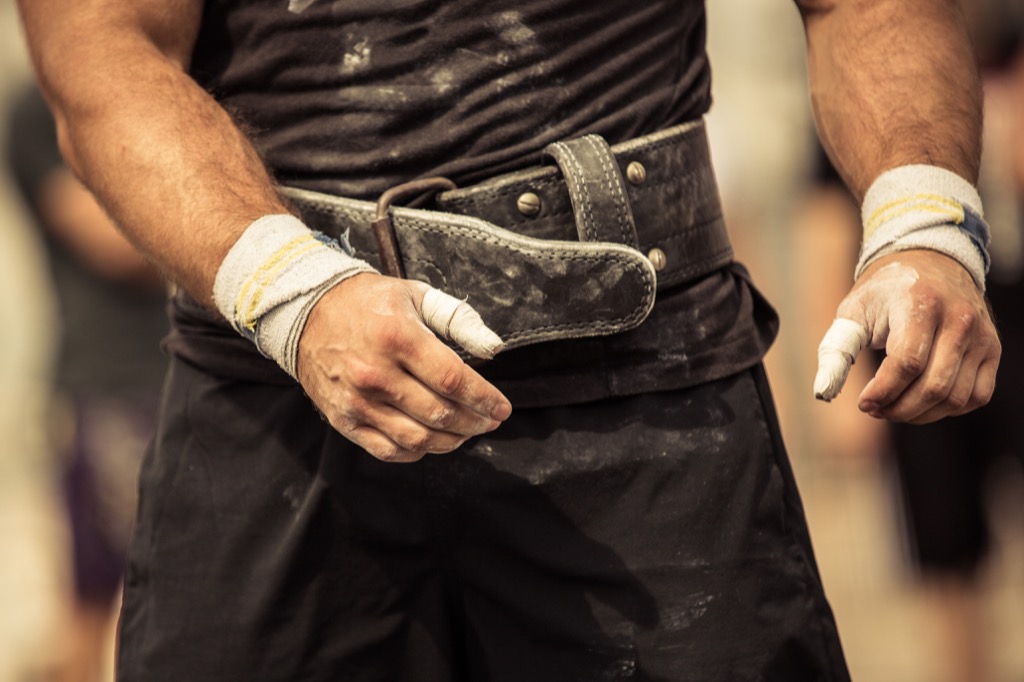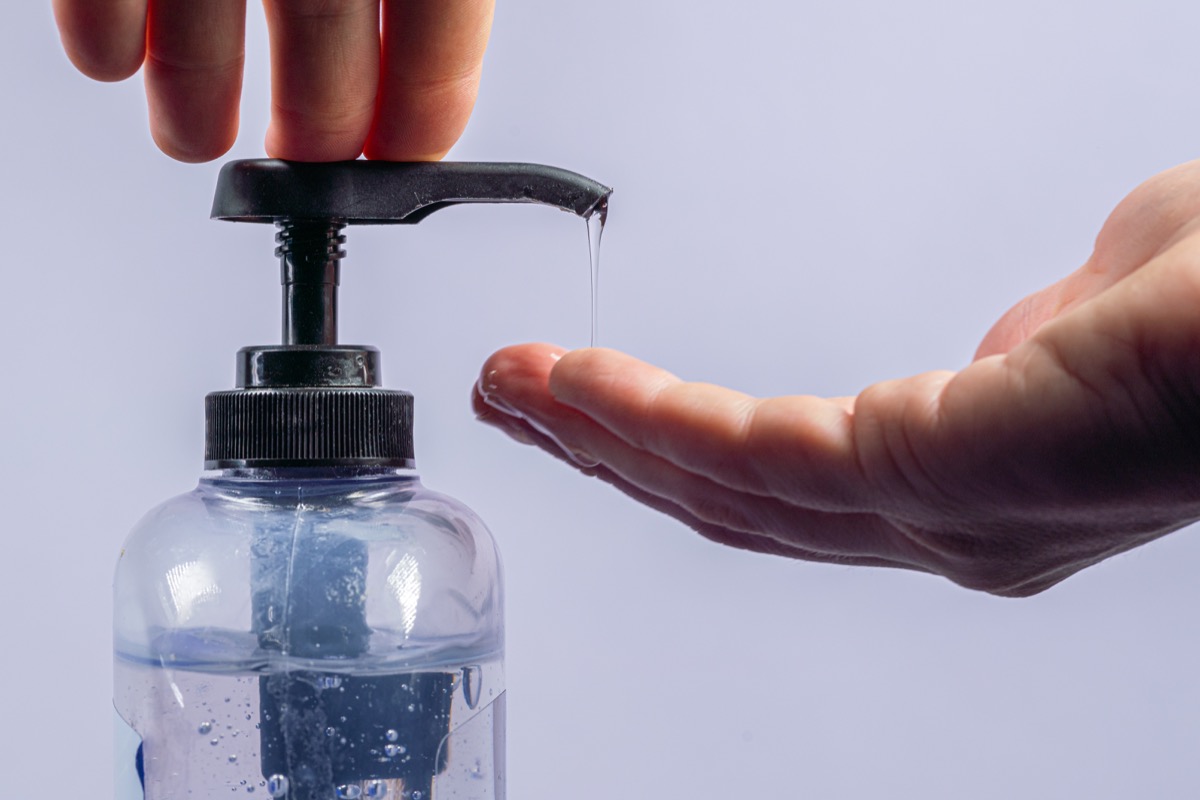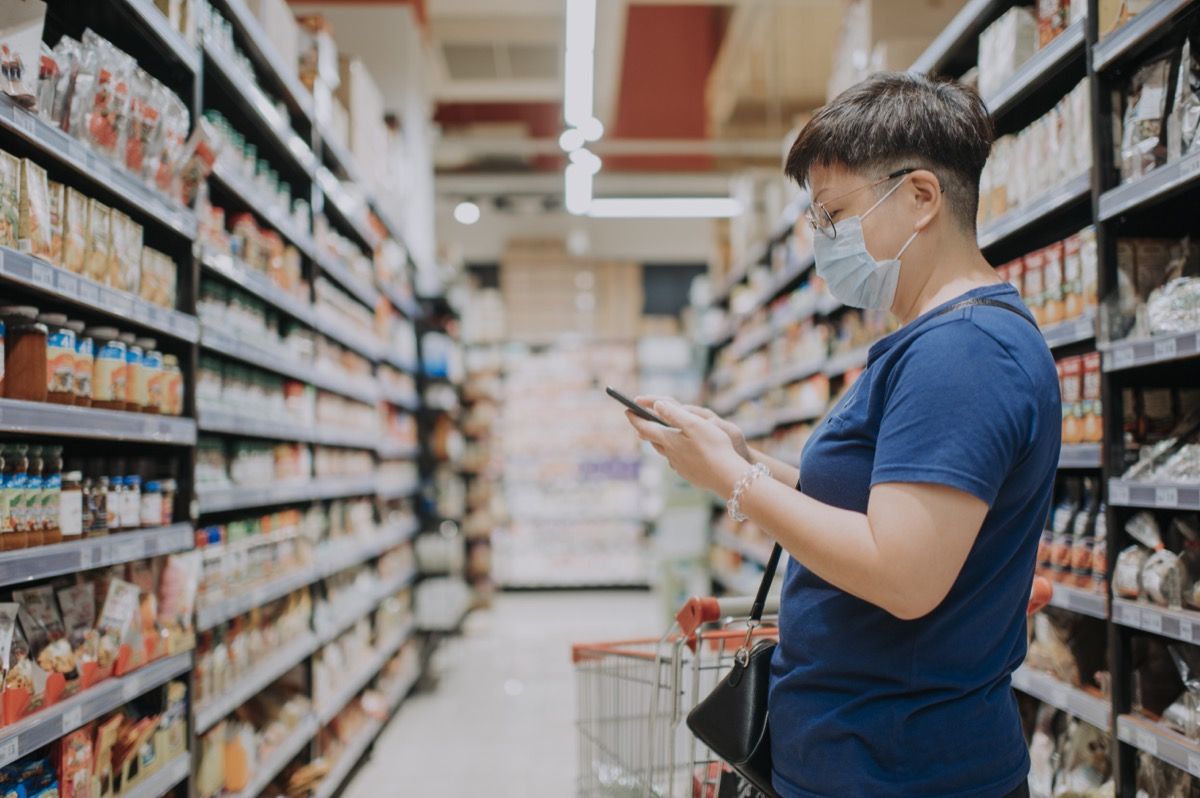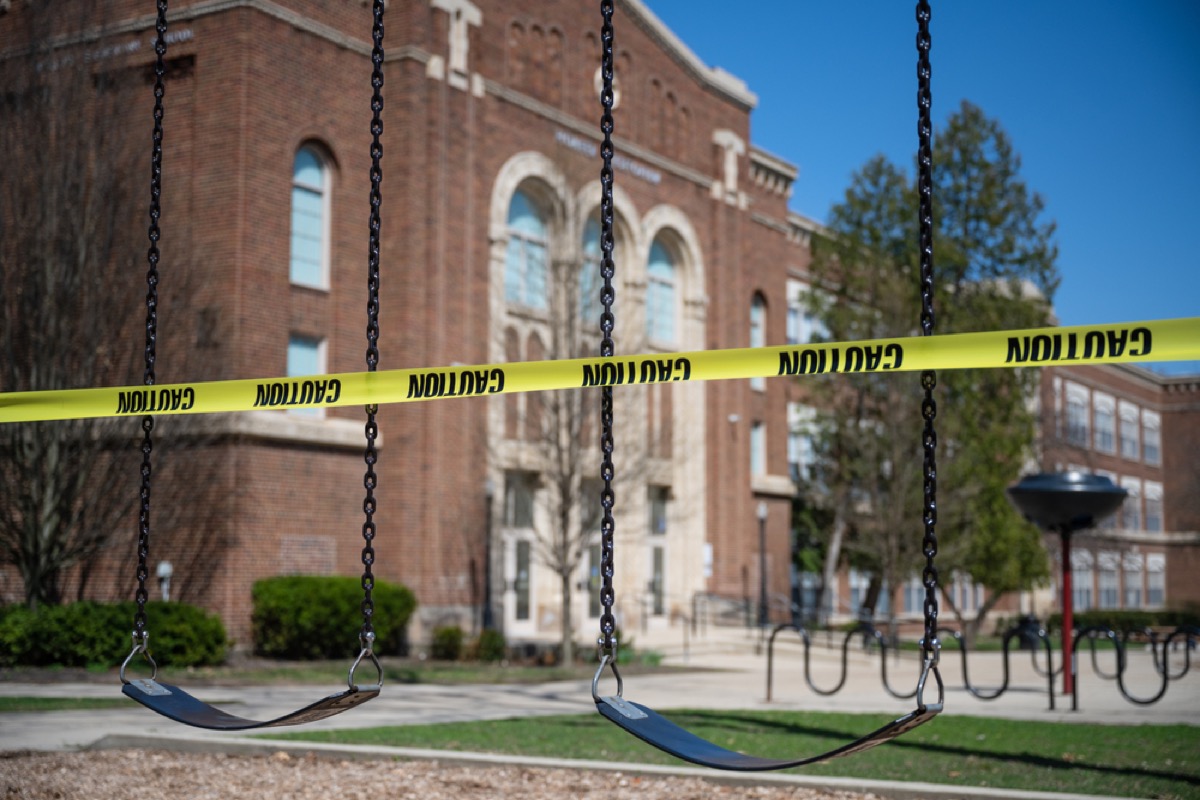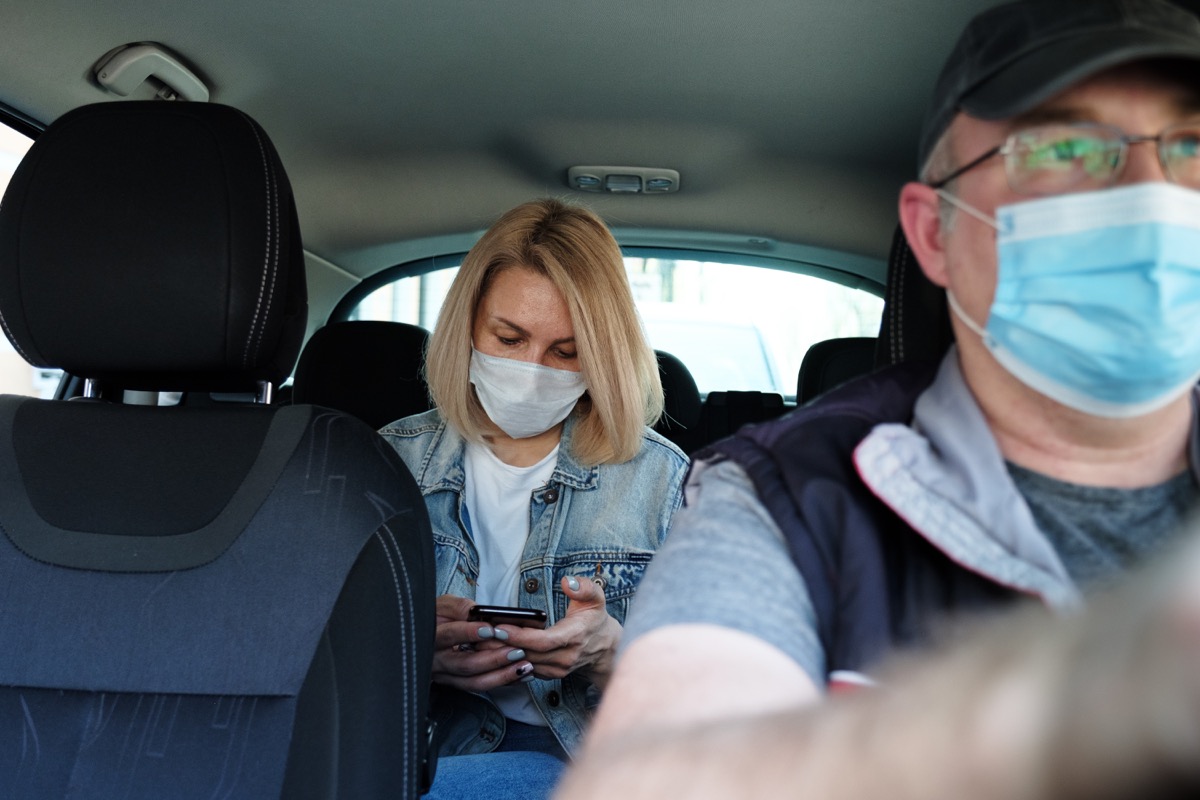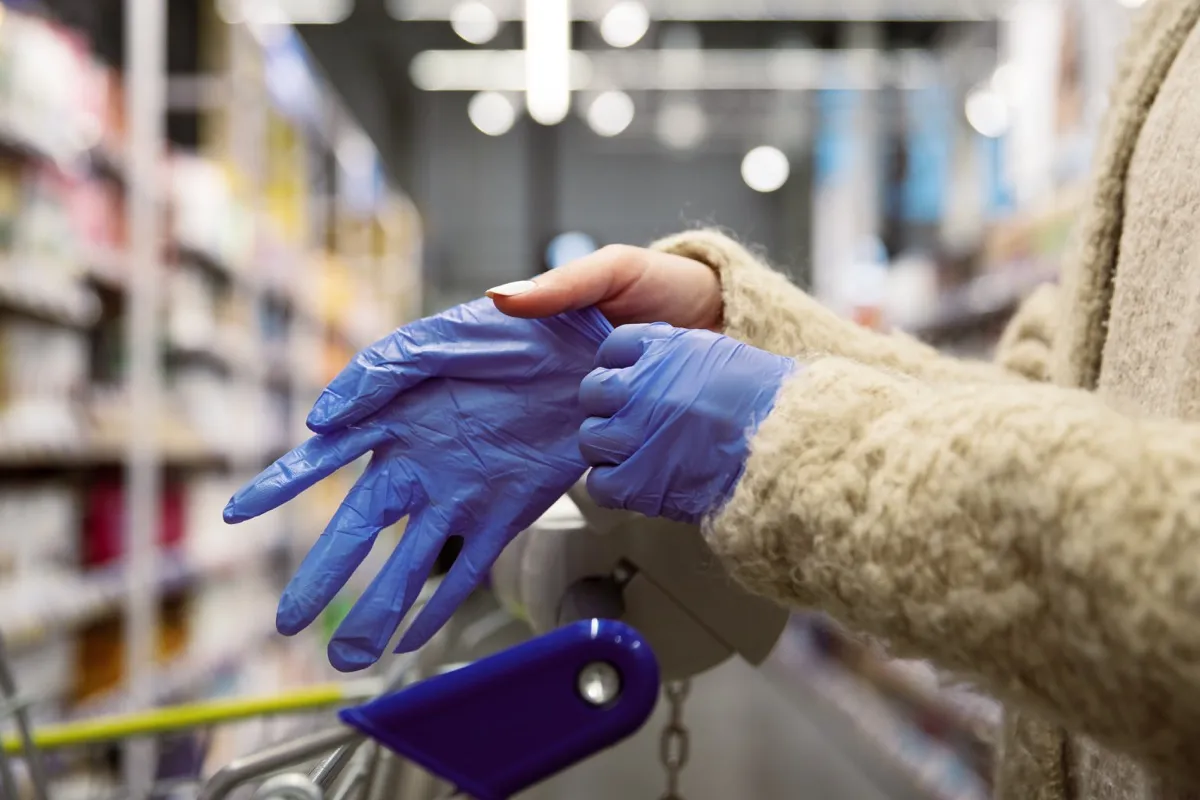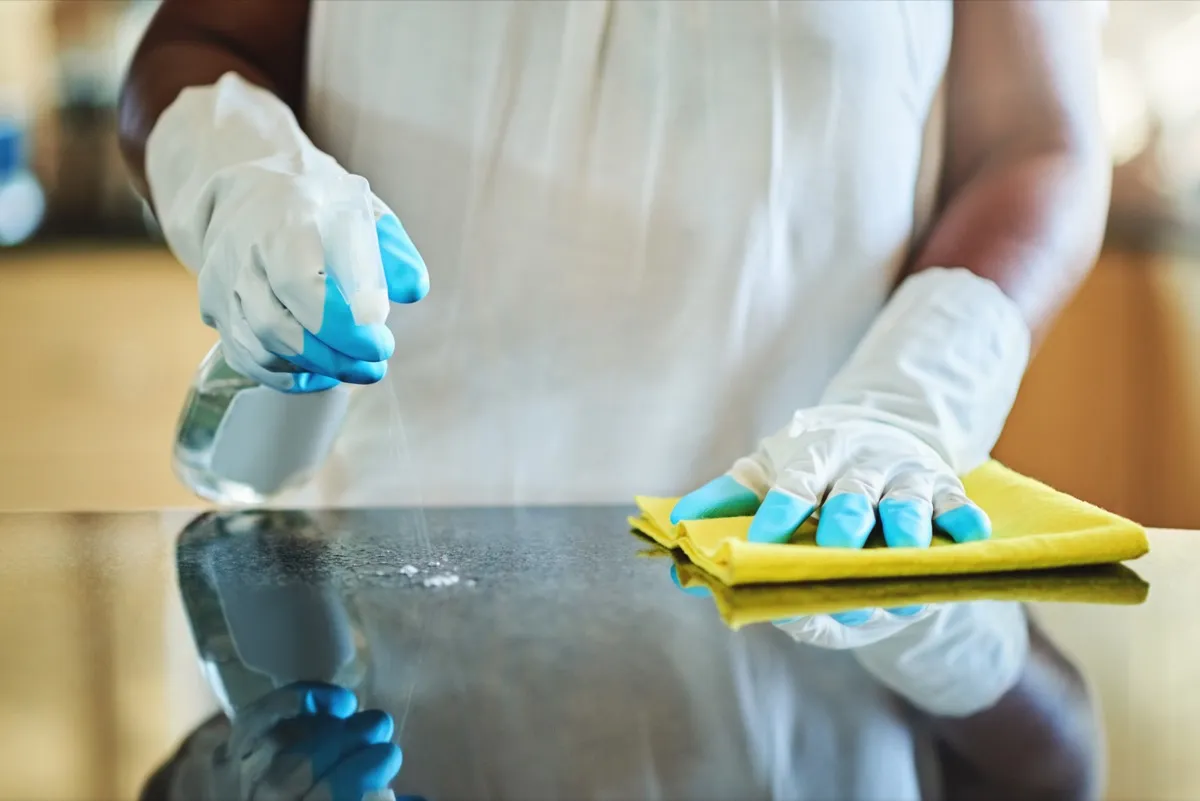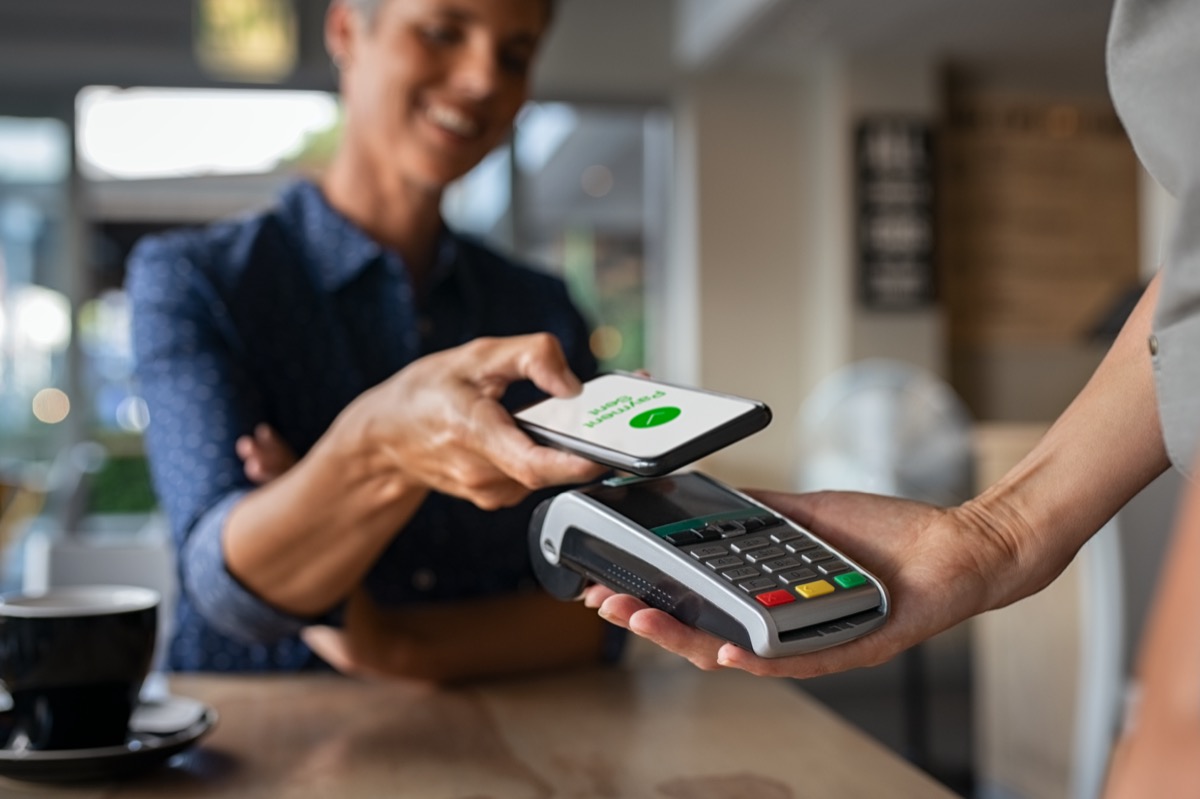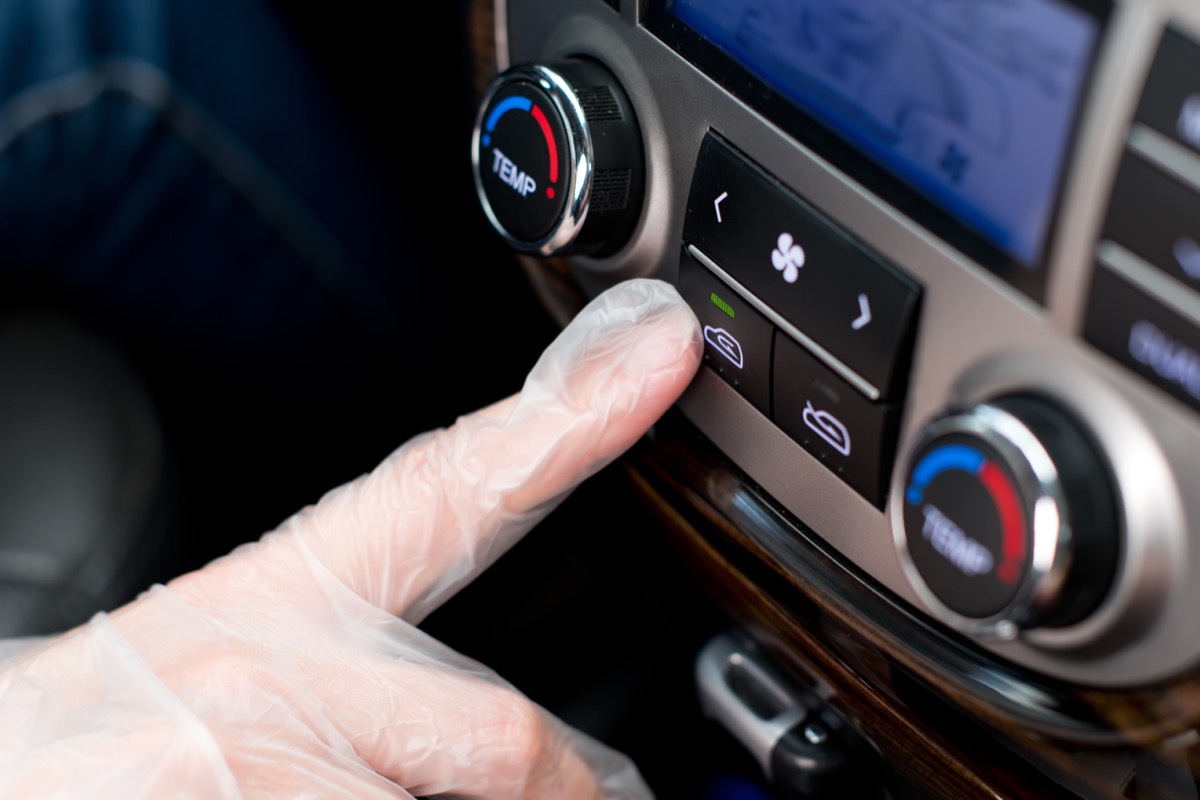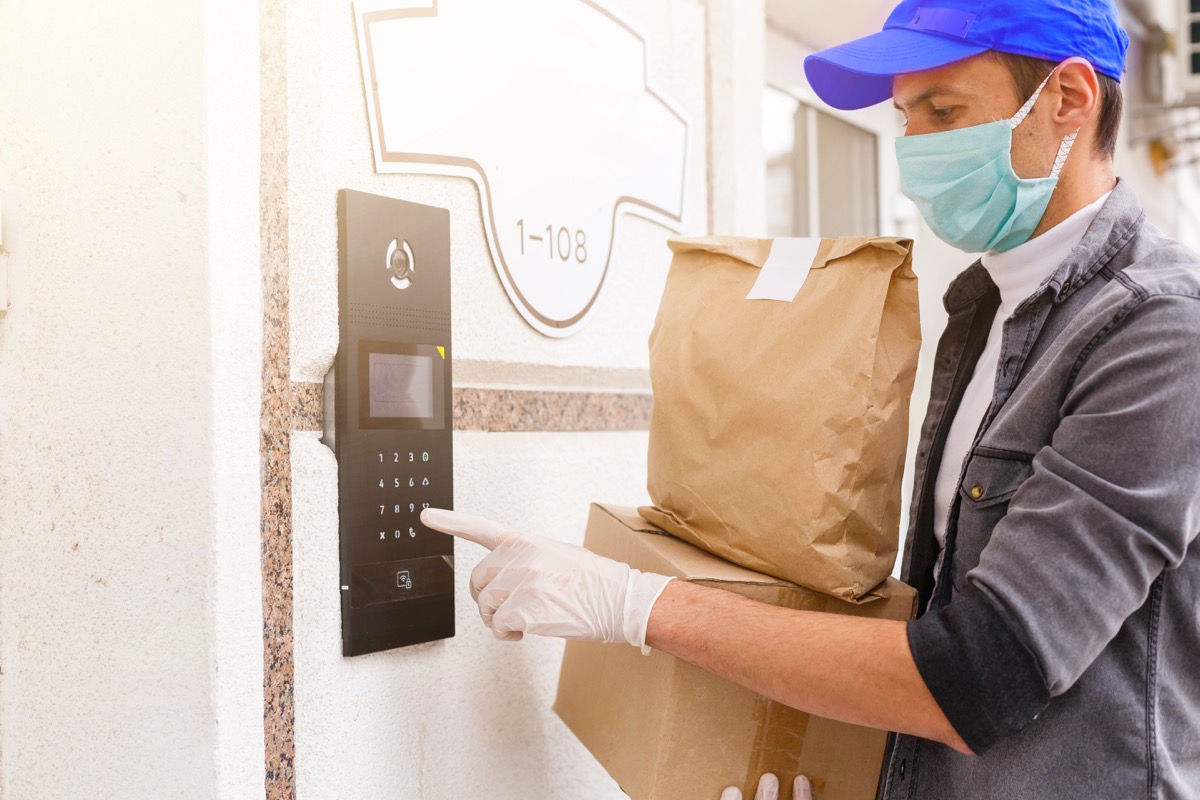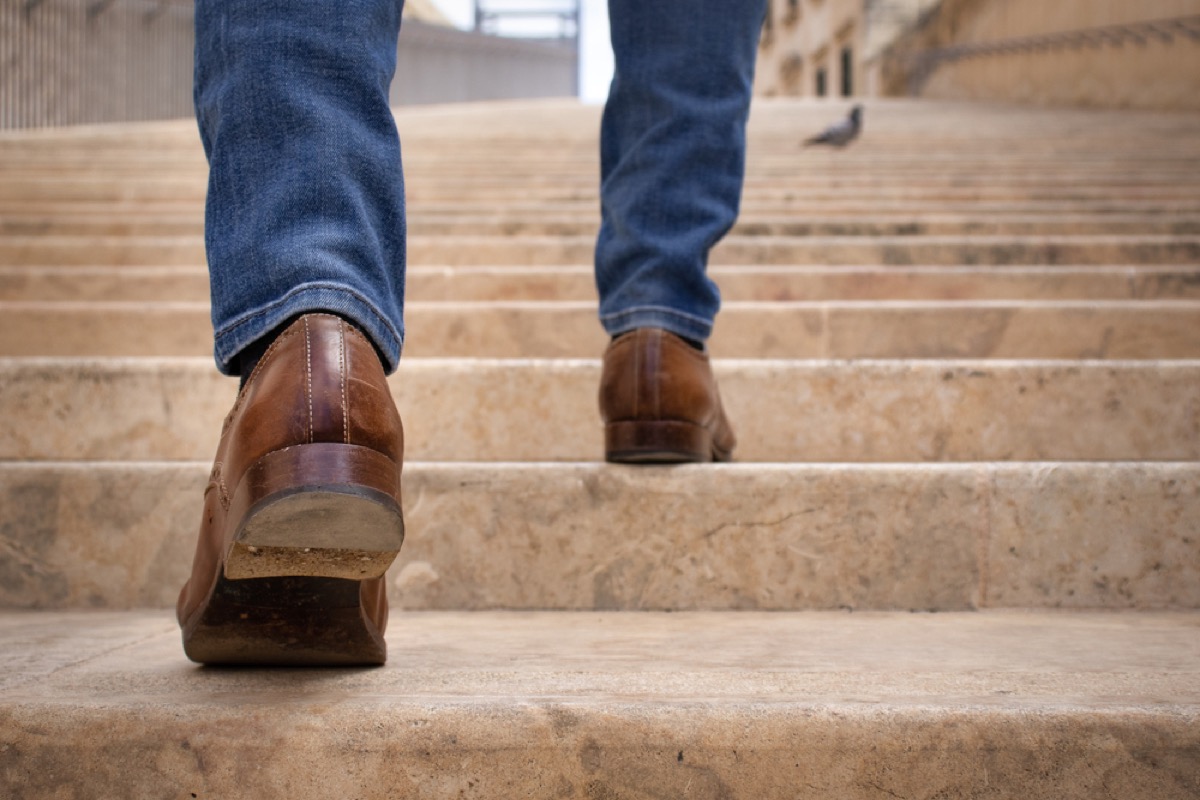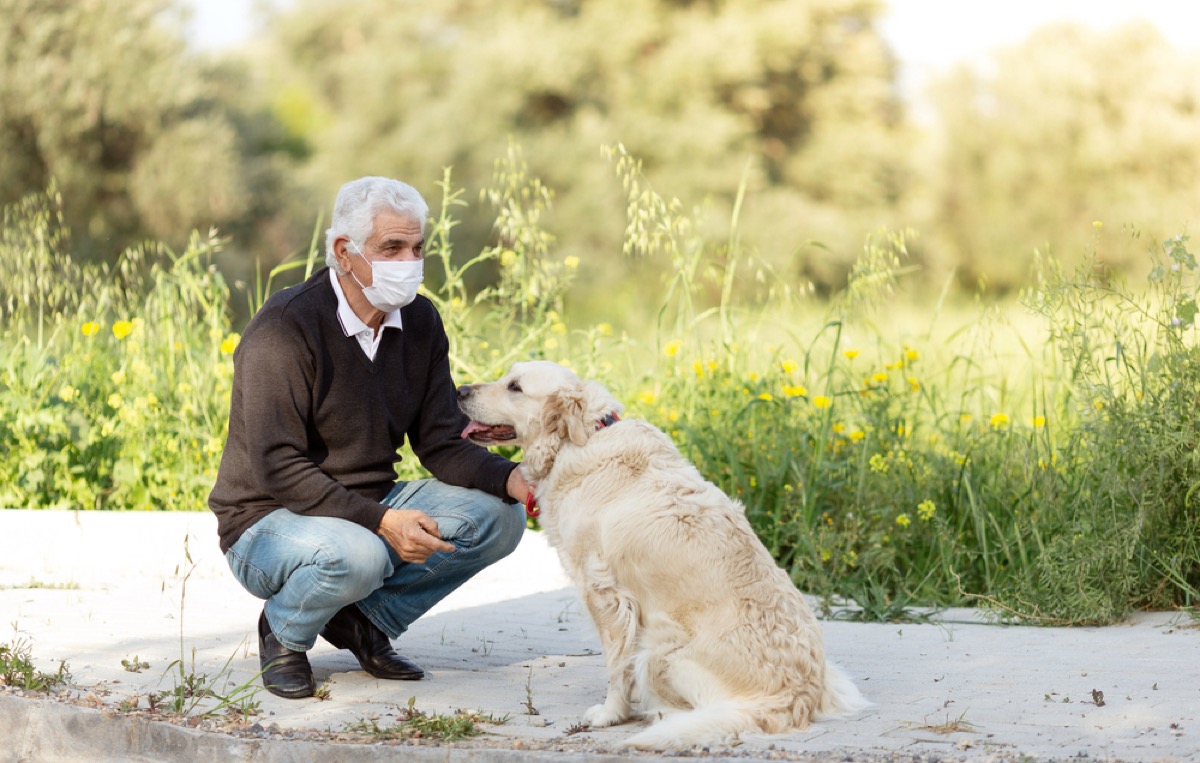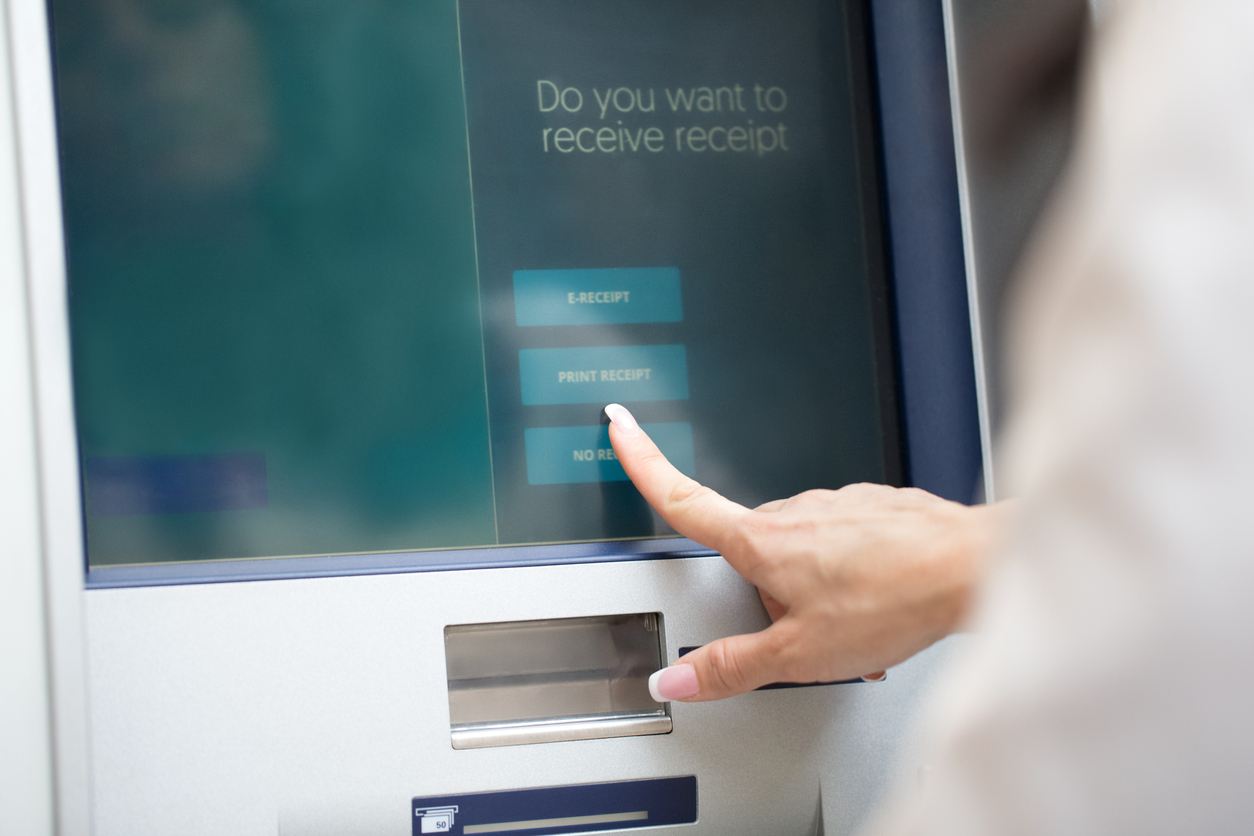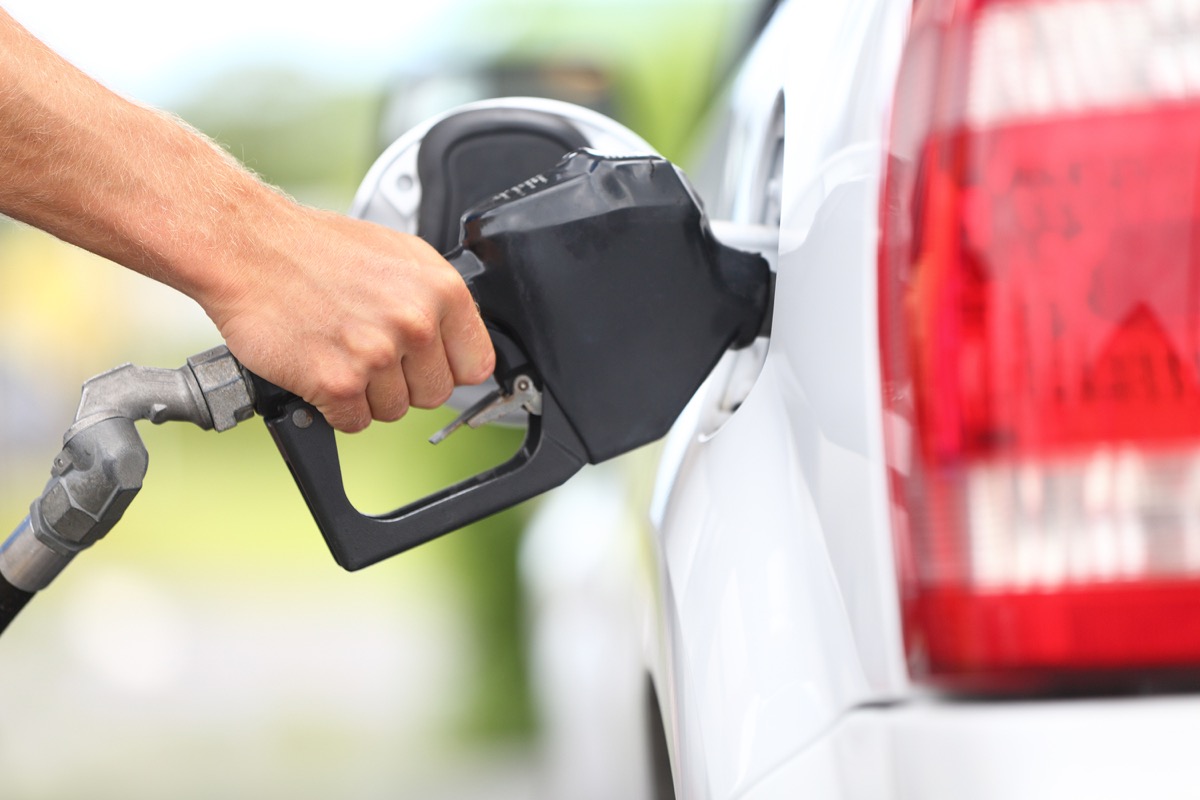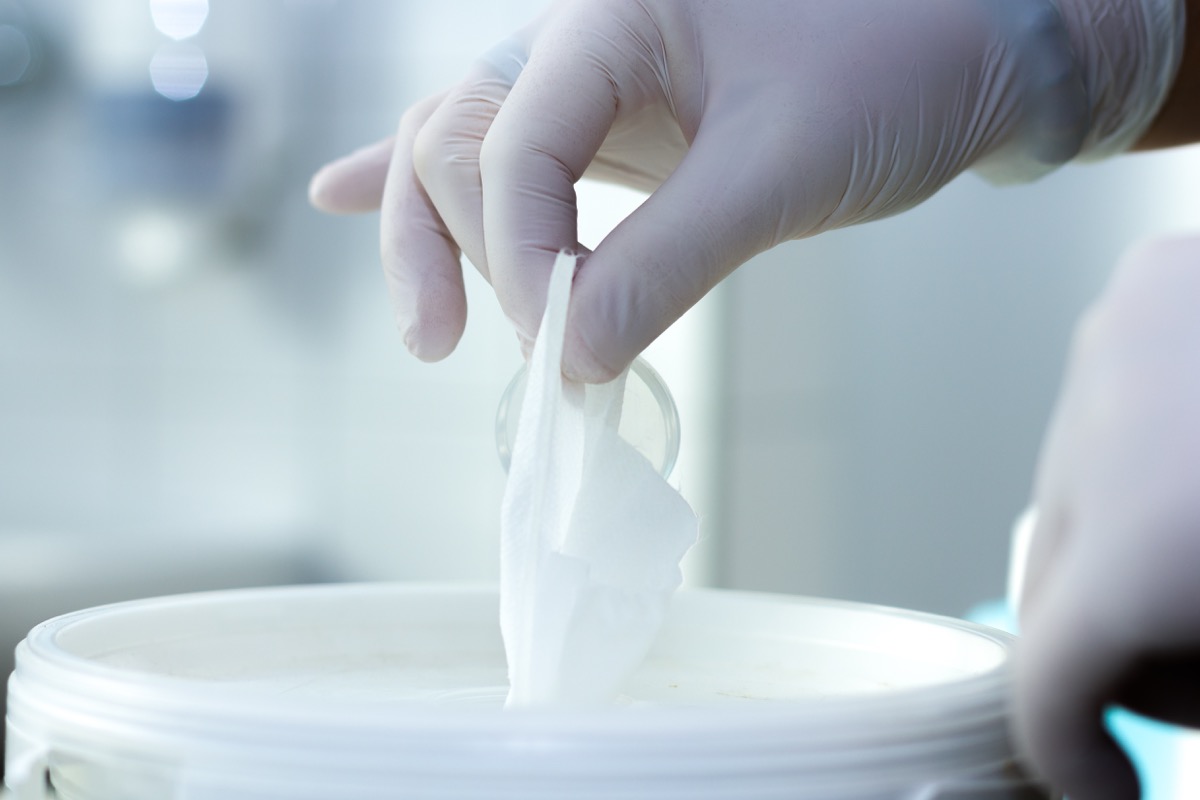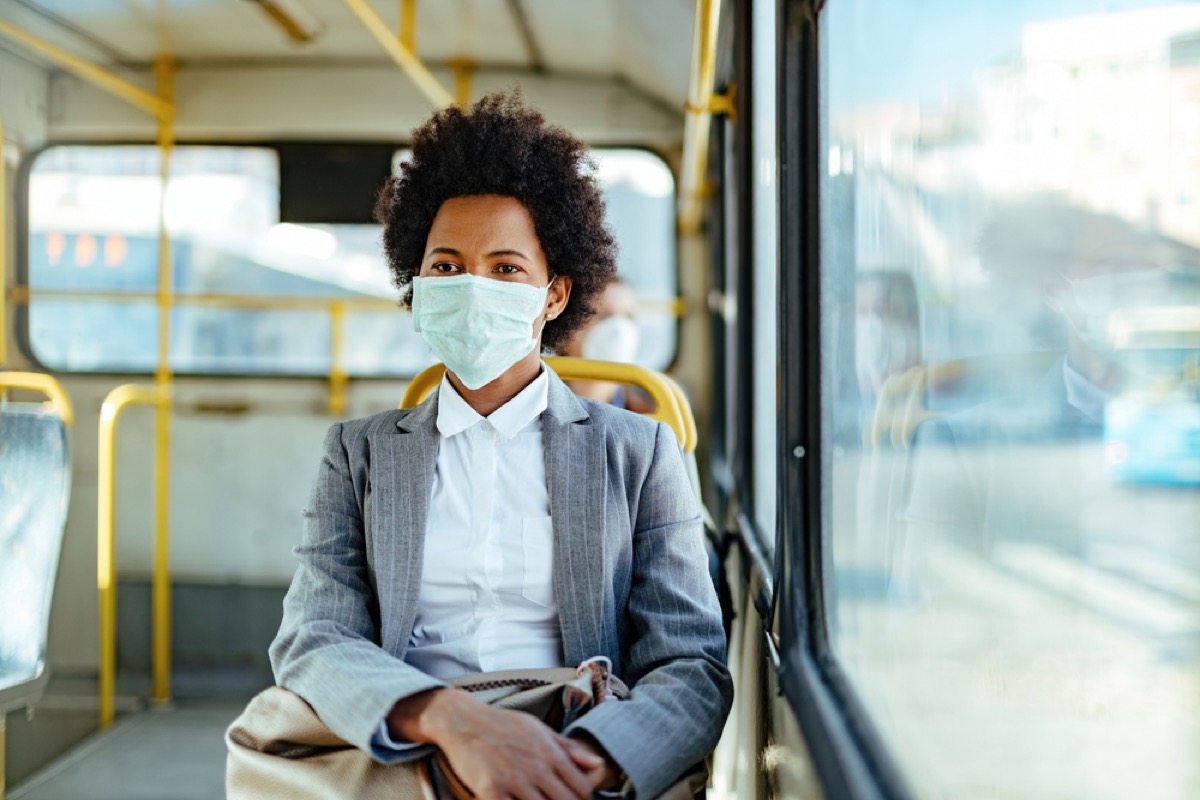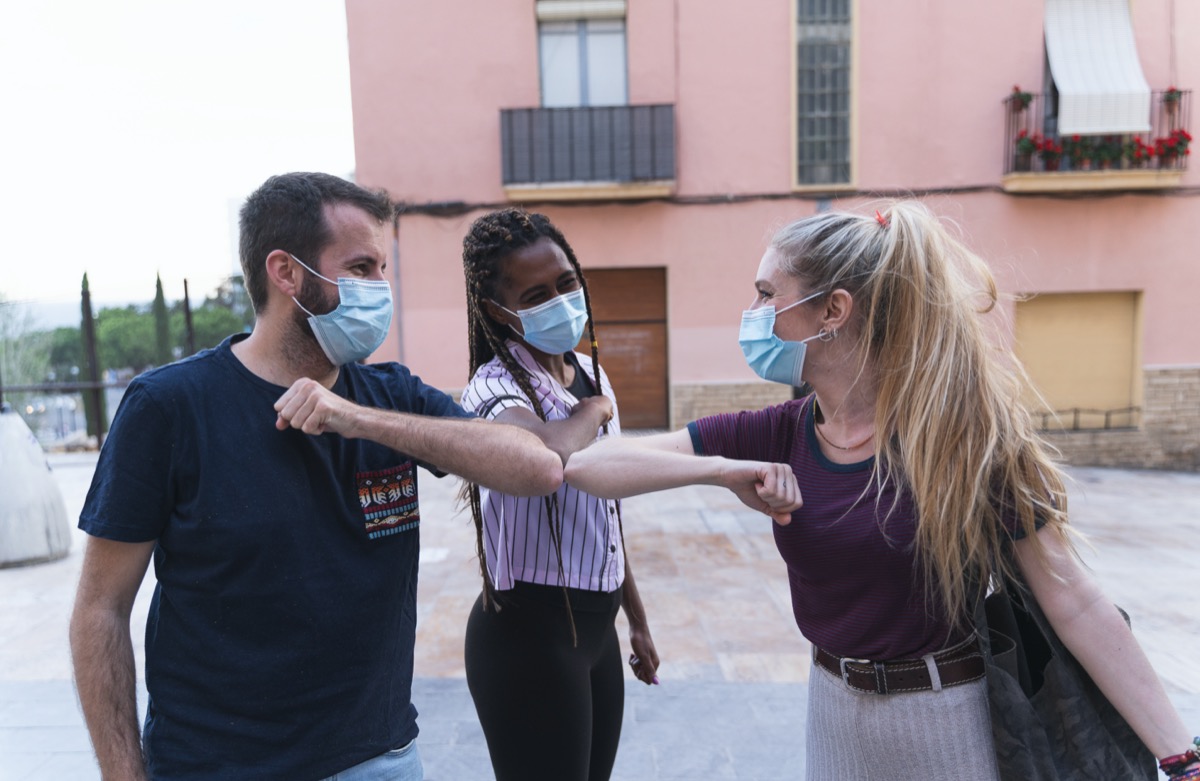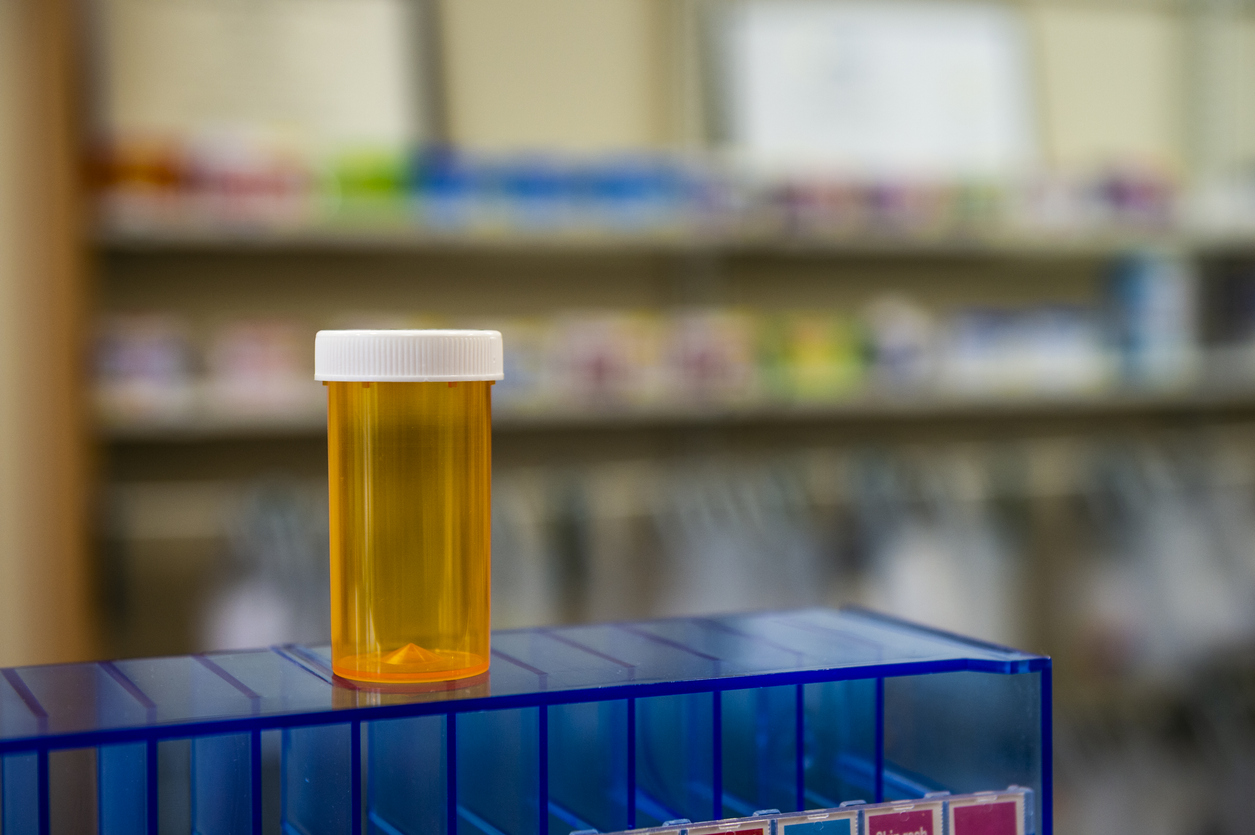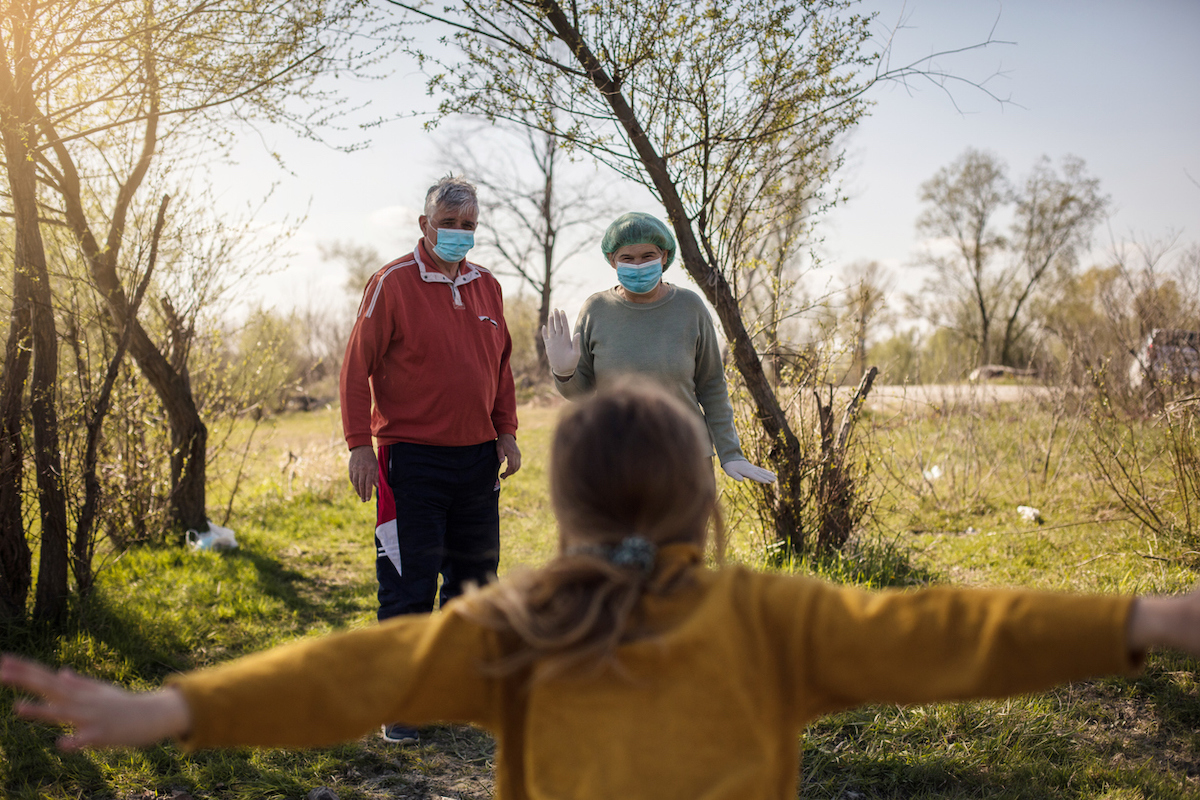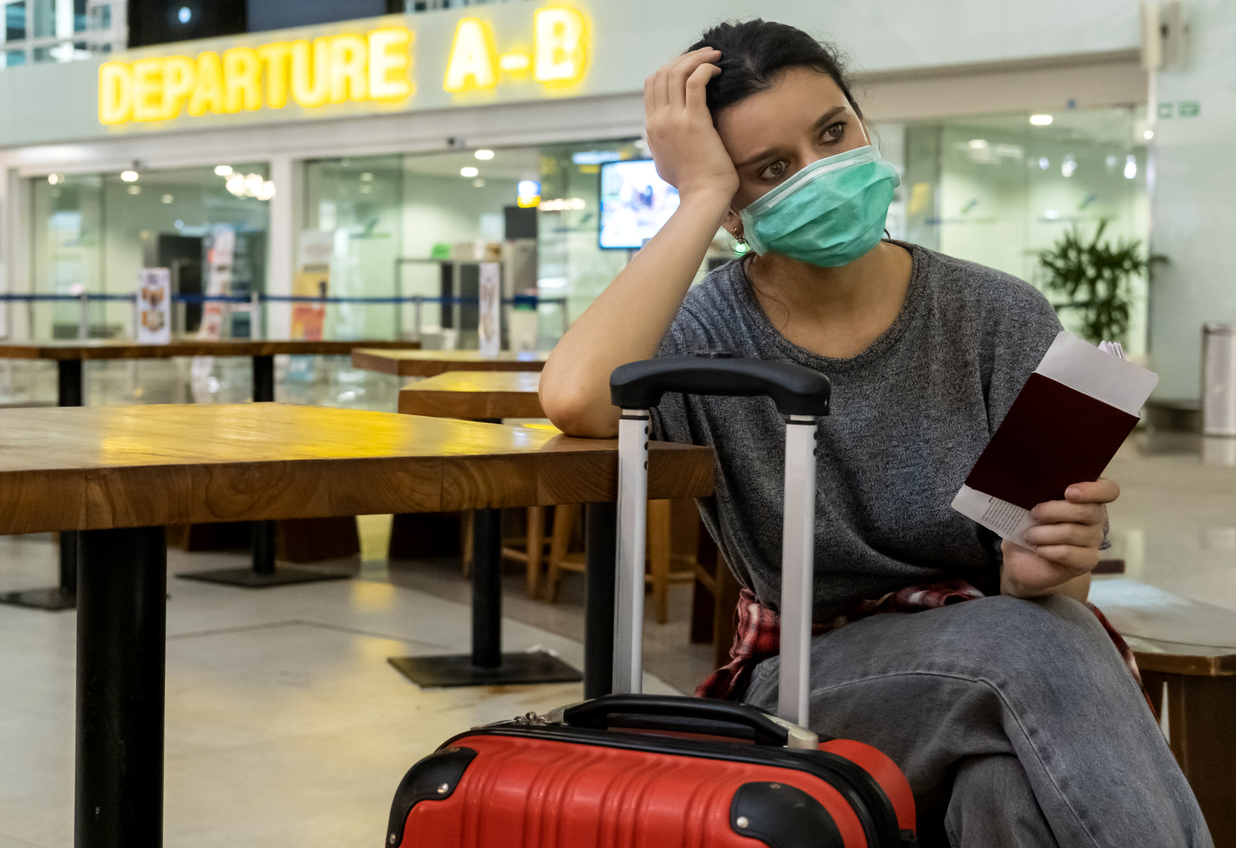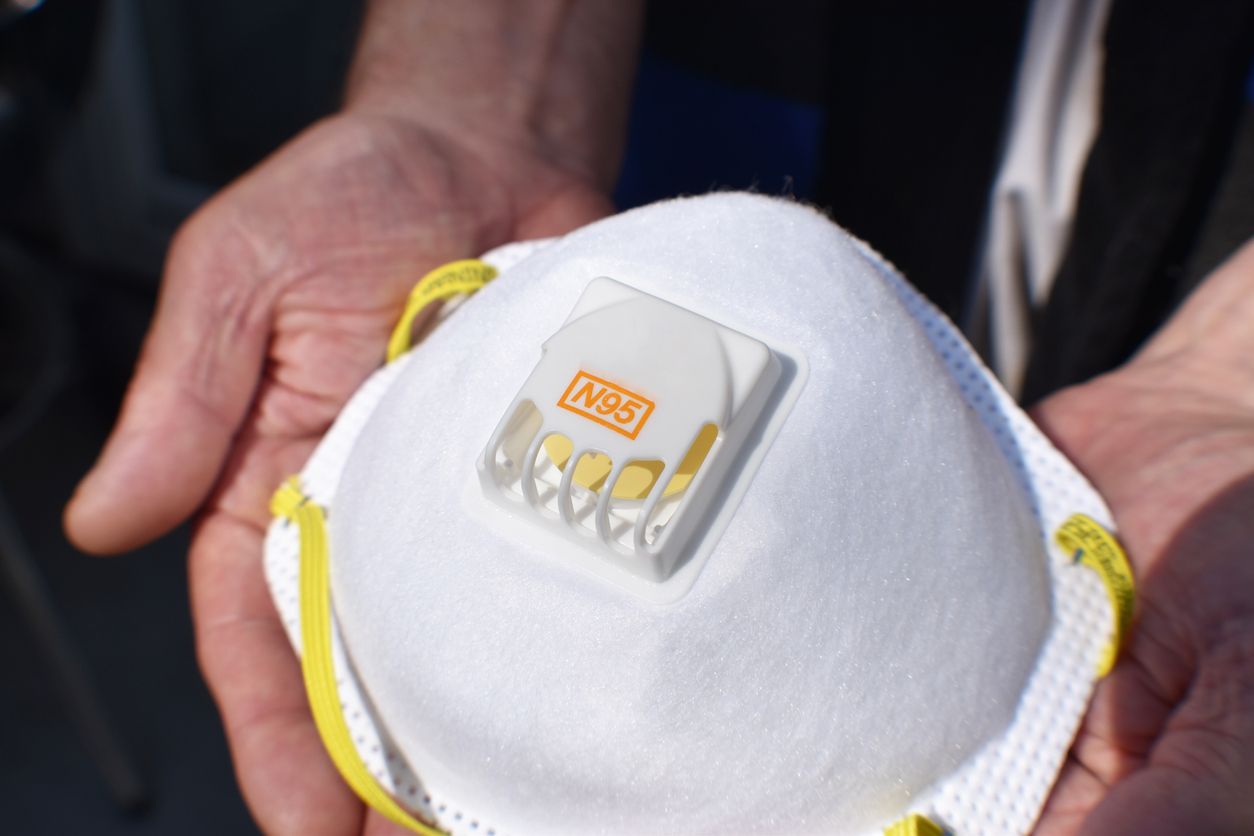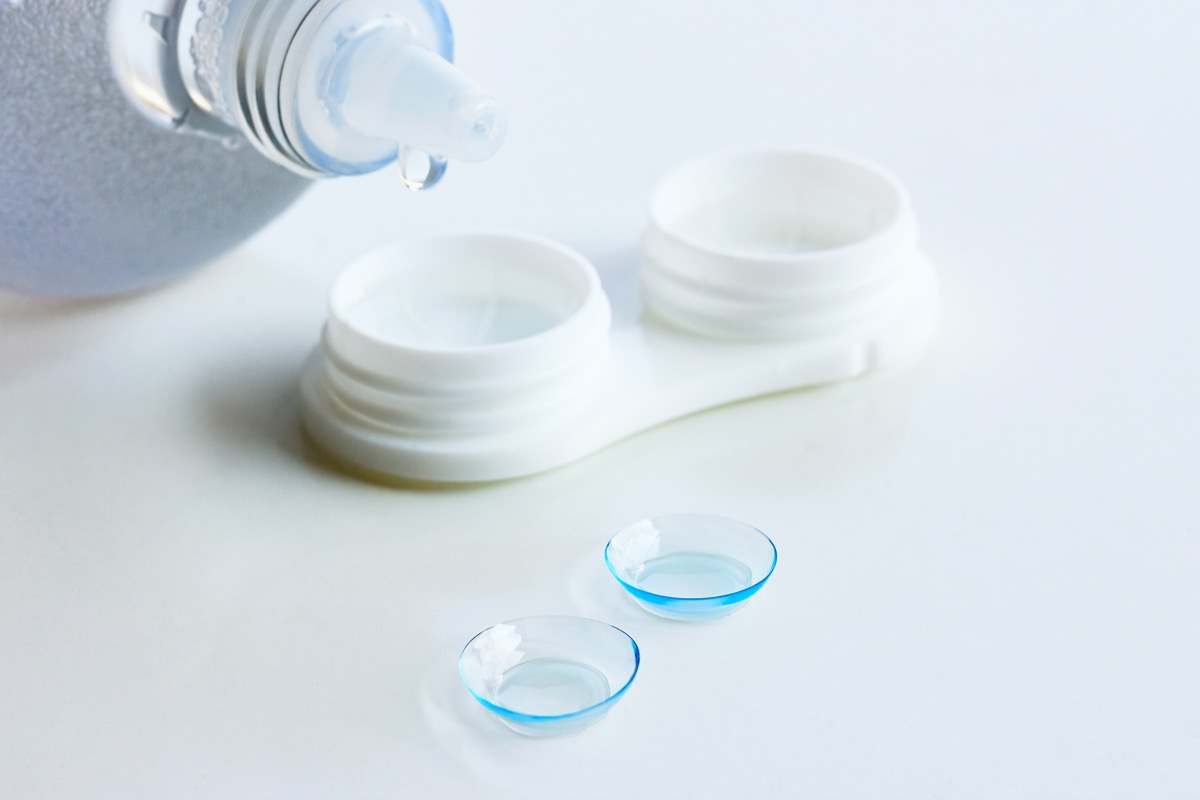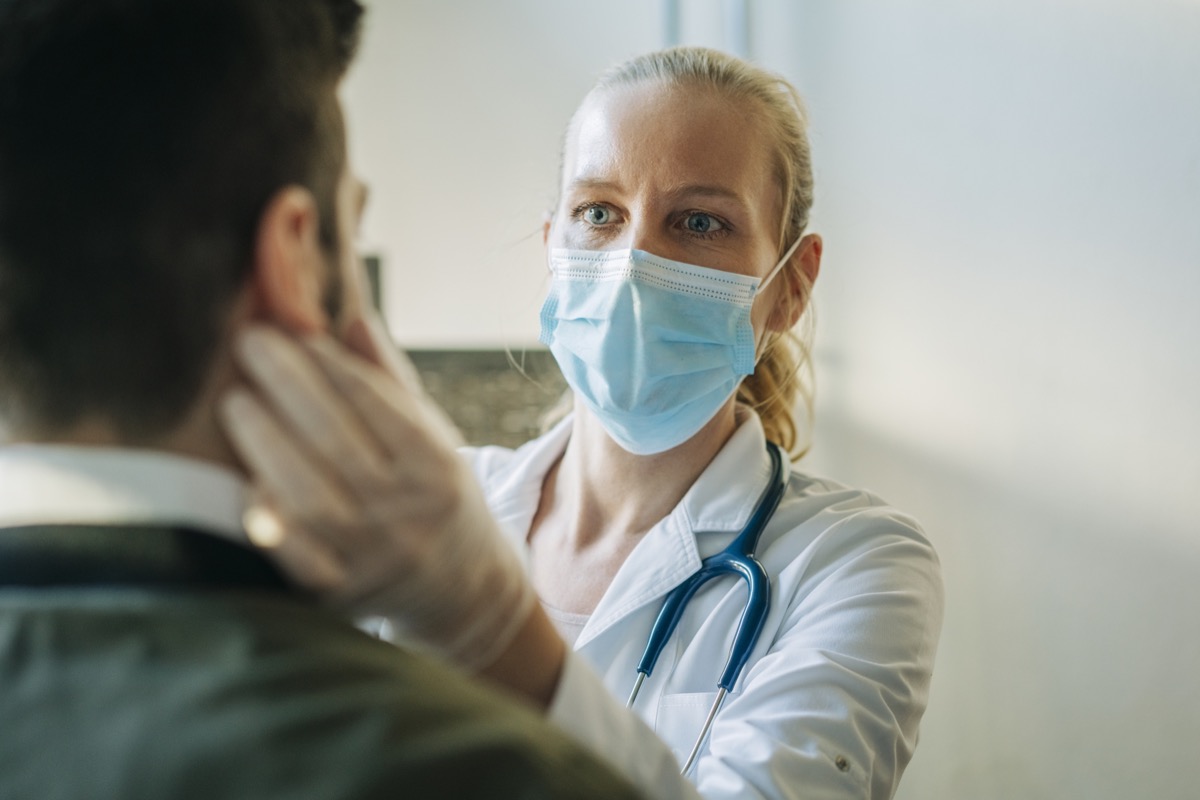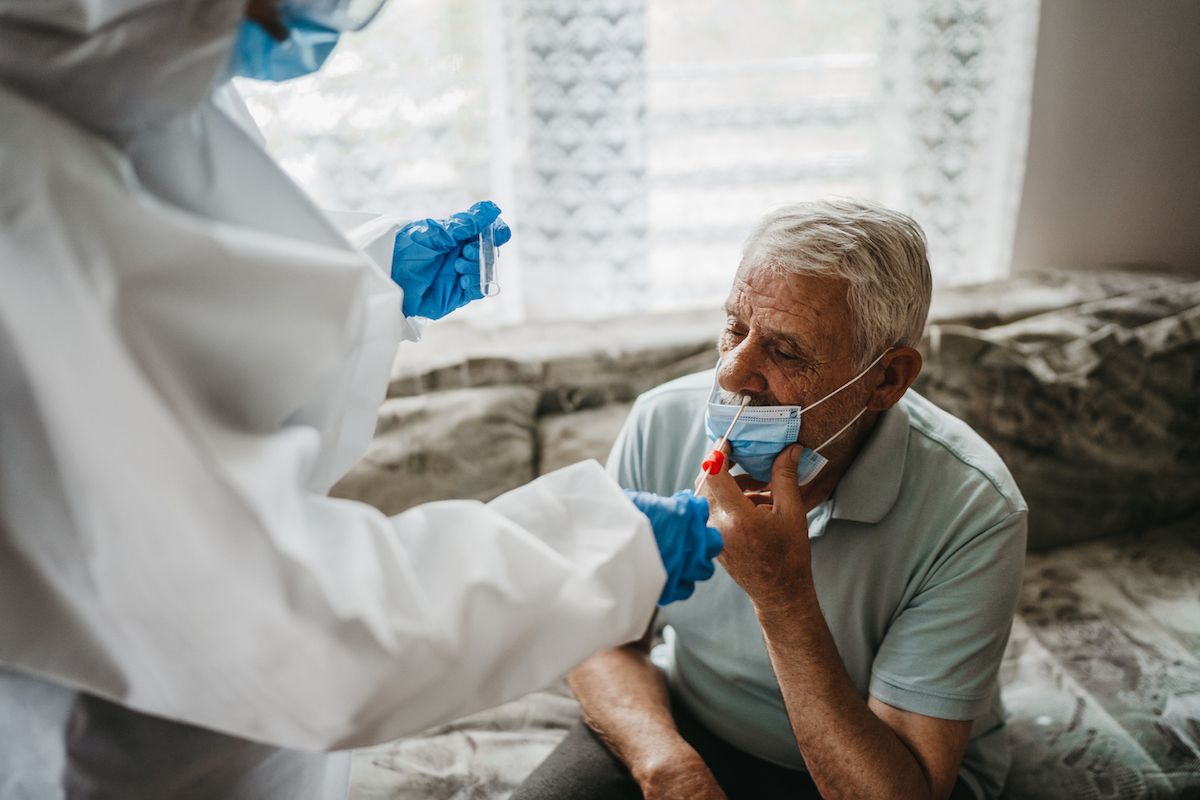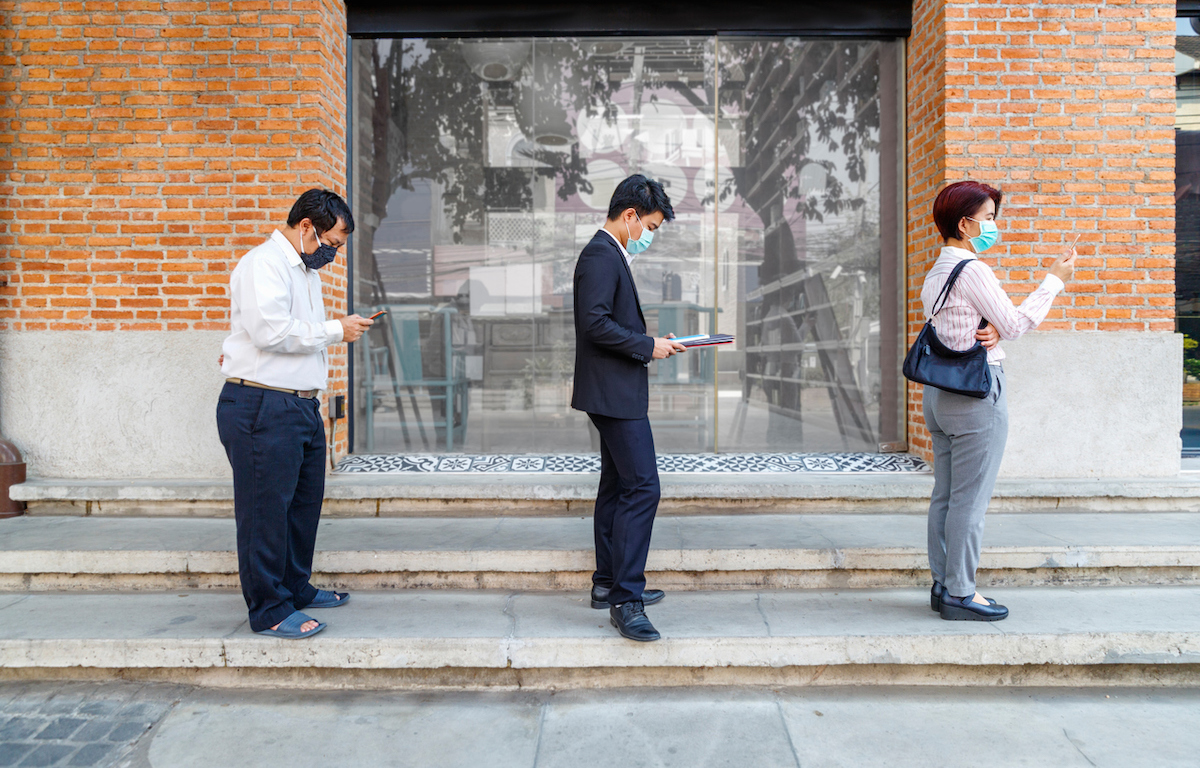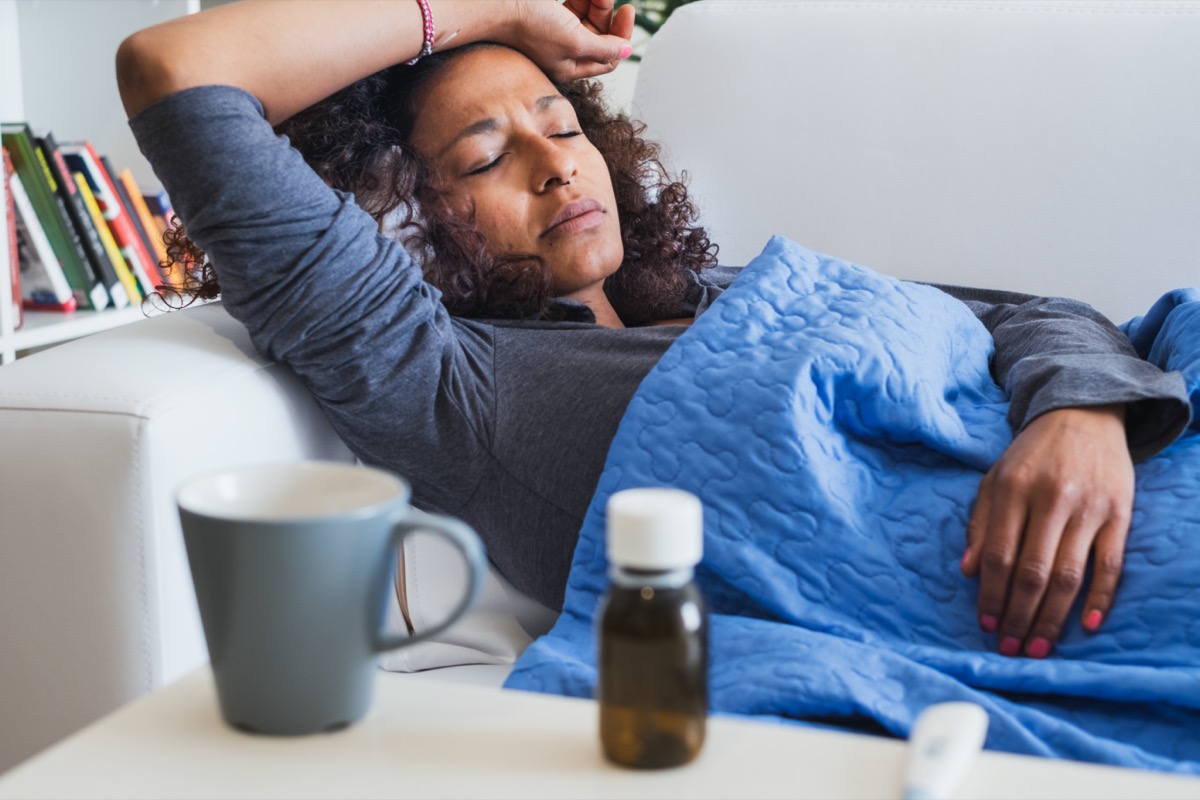Washing your hands with soap and water for at least 20 seconds is the number one way to protect yourself (and others!) from the coronavirus, according to the CDC. That’s why they say you should always wash your hands before you leave your house to go out into public, especially if you’re using any form of transportation. After all, you could be carrying the virus out with you without even knowing. And for more hand hygiene, check out The One Mistake You Shouldn’t Make When Washing Your Hands. Hand washing should be a huge part of your everyday life, especially during the pandemic. The CDC recommends you wash your hands in many situations, including “before eating or preparing food, before touching your face, after using the restroom, after leaving a public place, after blowing your nose, coughing, or sneezing, after handling your cloth face covering, after changing a diaper, after caring for someone sick, and after touching animals or pets.” The coronavirus is easily spread through close contact, which is why the CDC pushes social distancing. Droplets can travel at least six feet, so the CDC recommends keeping a minimum of that distance from others while in public. And for more on why that’s so important, Here’s How Just One Day of Social Distancing Slows the Spread, The CDC has recommended the use of cloth face coverings for almost all civilians since the beginning of April. According to the agency, masks are “most likely to reduce the spread of COVID-19 when they are widely used by people in public settings.” This recommendation has been so widely heeded that many states have even mandated mask usage. Your mask is only effective at preventing coronavirus spread if you wear it correctly. It has to cover your entire mouth and nose, the CDC says. Wearing it any other way renders it ineffective. Wearing a face mask is not enough, however. You also have to take care of it to prevent spreading the coronavirus. The CDC recommends washing your reusable face mask after every use, using regular laundry detergent and the warmest water setting the material can withstand. And for more on keeping your garments safe, check out the 7 Coronavirus Laundry Tips You Need to Start Following. The CDC released a list of seven supplies to have to protect against the coronavirus in June. And one of those items was a no-touch trash can. As Leann Poston, MD, health expert for Invigor Medical previously told Best Life, trash can lids are high-touch areas and “any surface that multiple people may touch can be a source of spread for COVID.” As states started lifting lockdown orders, many people began gathering with loved ones again. However, no gathering during the pandemic is without risk. That’s why the CDC recommends hosting any gatherings outside, as natural airflow helps prevent coronavirus spread. And for more tips for spending time with others, check out This Is Exactly What the CDC Says You Should Do When Someone Comes Over. Also, if you’re attending a cookout or gathering, you should bring your bring your own food and drinks. This will help prevent coronavirus spread that comes with shared items. And if food is being shared, only one person should be serving to limit contact. It’s not enough to just clean items to help prevent the spread of COVID-19. According to the CDC, you must also disinfect these surfaces, which involves using an EPA-registered household disinfectant. Many disinfectants have their own set of rules, too, however. According to the CDC, many disinfectants need to be sitting on a surface for a specific amount of time to take effect. Follow the instructions on a product’s label and keep the surface wet for the intended amount of time before wiping away. Many salons are requiring that you schedule appointments now, even if they previously accepted walk-ins. But even if your salon does not, the CDC recommends that you call to schedule an appointment before receiving any service during the pandemic. This helps “remove the need for waiting in a lobby with other people” so you can maintain distance from other customers, the agency says. And for more on service etiquette, This Is the Question No Stylist Wants to Hear Right Now. Many businesses are implementing this safety measure already, as well. But if not, the CDC still recommends that people wait in their car before it is time for their appointment instead of sitting in a potentially crowded and poorly ventilated indoor waiting area. You may not necessarily want to exercise with a face mask on, but the CDC says you should if you’re working out in a gym with other people. If you’re doing any kind of vigorous, high-intensity workout that would be better without a mask, they say you should exercise outside where you can maintain at least six feet of distance from anyone else. Gyms usually provide any type of equipment you may need, but stay away from the ones that can’t be easily disinfected or cleaned between uses at all. This includes resistance bands and weightlifting belts, per the CDC. Using hand sanitizer is a suitable alternative when you can’t wash your hands with soap and water. However, in order to be effective in killing the coronavirus, your hand sanitizer has to have an alcohol percentage of at least 60 percent, says the CDC. Many people know that they should be washing their hands for at least 20 seconds, but they may not know that the amount of time they spend rubbing in their hand sanitizer matters, too. A CDC in the Emerging Infectious Diseases journal revealed that rubbing for exactly 30 seconds was proven to be effective, but any less could leave traces of active virus, leaving you vulnerable to infection. And for more about sanitizer safety, check out The CDC Says You Must Keep Hand Sanitizer Away From Kids Under This Age.ae0fcc31ae342fd3a1346ebb1f342fcb If you’re doing any kind of shopping in public while the coronavirus is still raging, make sure you’re doing so during non-peak hours, per the CDC. This way you are going when less people are there, therefore reducing your risk of person-to-person spread. And for more up-to-date information, sign up for our daily newsletter. While you’re certainly allowed to take a nice stroll in the park, the CDC actually recommends that playgrounds stay off limits during the coronavirus pandemic. After all, these areas are usually crowded, which not only makes social distancing hard, but also makes it nearly impossible to clean and disinfect equipment every time it’s touched. What is the worst place to sit in someone else’s car right now? The passenger seat. The CDC recommends that people sit in the backseat of someone else’s car if they don’t live in the same household or are using a ride share service. This way you’re allowing for as much distance as possible to reduce droplet transmission. You may see gloves as an extra protection measure while out and about, but the CDC actually warns against them for everyday use. This is because, as Poston previously told Best Life, gloves lead to a false sense of security and may actually heighten cross-contamination. After all, many people “put on gloves, go shopping, use their cell phones, touch their faces, enter their cars and homes, and then remove their gloves,” she says. The CDC does recommend the use of gloves in two situations: when you are cleaning and when you are caring for someone who’s sick. They point out that certain powerful disinfectant products require the use of gloves to protect the skin. And disposable gloves are necessary when cleaning and disinfecting the area around an infected person and any other surfaces they may have come in contact with. The use of things that several people have touched is highly discouraged right now, as it can spread the coronavirus. That’s why the CDC is pushing away payment forms like cash and card and instead, pushing for touchless forms of payment. Don’t set your car air conditioning to recirculation mode this summer. The CDC says you’ll want to “improve the ventilation” in your car to help prevent coronavirus spread by setting it on non-recirculation mode, which brings in fresh air from outside instead. Ordering delivery during the pandemic? Reduce person-to-person interaction and exposure by choosing contactless delivery options, the CDC recommends. The agency advises you to “ask for deliveries to be left in a safe spot outside your house,” like on a front porch or in a lobby. Your delivery person will also appreciate it. If you’re still using traditional payment methods, try to make yourself a little safer by staying out of bank buildings. The CDC recommends that you use a drive-through ATM whenever possible. If feasible, the CDC recommends that you opt for taking the stairs instead of the elevator, especially “when elevator lobbies are crowded or when only going a few flights.” This is because elevators are typically high-trafficked and poorly ventilated, and thus among the riskiest places amid coronavirus. Using disposable items is especially important when you are with other people or dining out, the CDC notes. Instead of using reusable utensils or sharing washcloths to dry hands, opt for disposable items like paper towels and plastic utensils. While the prospect of coronavirus transmission through animals is not high, it still is possible. The CDC recommends that you “treat pets as you would other human family members” by keeping them away from any pets or people that are not in your same household. When out in public, avoid touching things with your bare hands that many people touch as well. According to the CDC, this includes “kiosks, digital interfaces such as touchscreens and fingerprint scanners, ticket machines, turnstiles, handrails, restroom surfaces, elevator buttons, and benches.” If you do have to touch any of these items, wash or sanitize your hands immediately after. While the CDC has said that person-to-person spread is the most common way coronavirus is transmitted, the virus can still linger on surfaces. So when bringing items into your home that have traveled in other places, like your mail, they recommend washing your hands immediately after. Gas pump handles are handled by many people throughout the day, and you should assume they’re not being cleaned in between uses. To prevent coronavirus spread, the CDC recommends using disinfecting wipes on pump handles and buttons when at the gas station. If you’re traveling, make sure you have the necessary essentials. The CDC recommends bringing sanitizing wipes and hand sanitizer along with you so you’re prepared for any situation where you can’t immediately wash your hands. When using public transportation, the CDC recommends trying to keep as much distance as possible. One of the ways you can do this is by entering and exiting through rear doors, so you don’t have to walk through as many people or by the driver. If restaurants are open in your area and you are choosing to dine-in as a result, considering actually dining outside the restaurant, if possible. Opt for outdoor seating where tables are at least six feet apart to stay safest while dining, the CDC recommends. The CDC is recommending that you put hugs and handshakes on the back burner for right now. Instead, choose verbal greetings and waves that you can do from a respectable distance. You don’t need to give up on your library service, but you do need to be mindful of how you’re using it. Instead of taking home print materials that have been touched and borrowed by others, consider using digital services if they’re available to you. If you have regularly scheduled doctor appointments or check-ups during this time, the CDC says to consider using telehealth methods to connect with your physician digitally. This will prevent you from coming in contact with sick patients seeking care. Sick people also tend to visit the pharmacy for medicine. To ensure your safety, the CDC recommends you limit your trips to the pharmacy. Schedule to pick up all your medications at the same time, or “use drive-thru windows, curbside services, mail-order, or other delivery services,” the agency says. The CDC says there is no evidence that COVID-19 is spread through water. However, that doesn’t mean you don’t need to be cautious if you’re planning to engage in aquatic activities this summer. Their recommendation is to avoid “crowded beaches, pools, water playgrounds, and hot tubs” where social distancing isn’t possible. According to the CDC, hand sanitizer is not as effective when your hands are visibly dirty or greasy. So if you’re visiting the beach or engaging in other messy activities, they recommend you wipe sand and dirt off before applying hand sanitizer. But don’t skip sanitizing your hands! Older individuals are at a higher risk for getting coronavirus and experiencing severe symptoms. In order to keep everyone safe, the CDC recommends “postponing visits or trip to see older family members and grandparents.” The same goes for friends and family members who are immunocompromised or in other high-risk categories. If you have been in close contact with someone who has recently tested positive for COVID-19, the CDC recommends you stay at home and maintain social distance for at least 14 days afterwards. They define “close contact” as “anyone who was within six feet of an infected person for at least 15 minutes starting from 48 hours before the person began feeling sick until the time the patient was isolated.” While the prospect of cheap airfares may be enticing people to look into international travel, it’s still not safe, the CDC says. And if you do end up returning from outside of the country, they recommend staying home for at least 14 days when you arrive back to avoid potential spread. The race to secure an N-95 mask during shortages has led to the fabrication of fake masks to try to mislead consumers. The CDC issued a report in July warning people to look out for counterfeit masks that have not actually been certified by the National Institute for Occupational Safety and Health (NIOSH), which is the agency responsible for the approval of all respiratory protective equipment. If you wear contacts, you need to take extra precautions during the pandemic, as research suggests the virus can be transmitted through your eyes. The CDC says you should only handle contact lenses over surfaces that have been cleaned and disinfected prior. COVID-19 can produce a myriad of symptoms or no symptoms at all. However, if you’re experiencing any of the five severe COVID symptoms the CDC has laid out, you need to seek immediate emergency care. These symptoms are trouble breathing, persistent pain or pressure in the chest, new confusion, inability to wake or stay awake, and bluish lips or face. If you work or live in a nursing home, the CDC recommends that you get tested for the coronavirus weekly. Nursing homes have been the site of many coronavirus outbreaks and are home to some of the most high-risk patients. The CDC hopes that more frequent testing will help locate and isolate any possible cases before they result in a deadly spread. Voting season is upon us, but the CDC warns that in-person voting can be dangerous because of crowds and long wait times. Instead, they’re pushing citizens and officials to consider alternatives to casting ballots in person during the upcoming elections. No matter what you do, if you’re sick, the CDC says you need to stay home. Even if you don’t necessarily have the coronavirus, your immune system may be too overworked from fighting off your illness to protect you from getting it.

